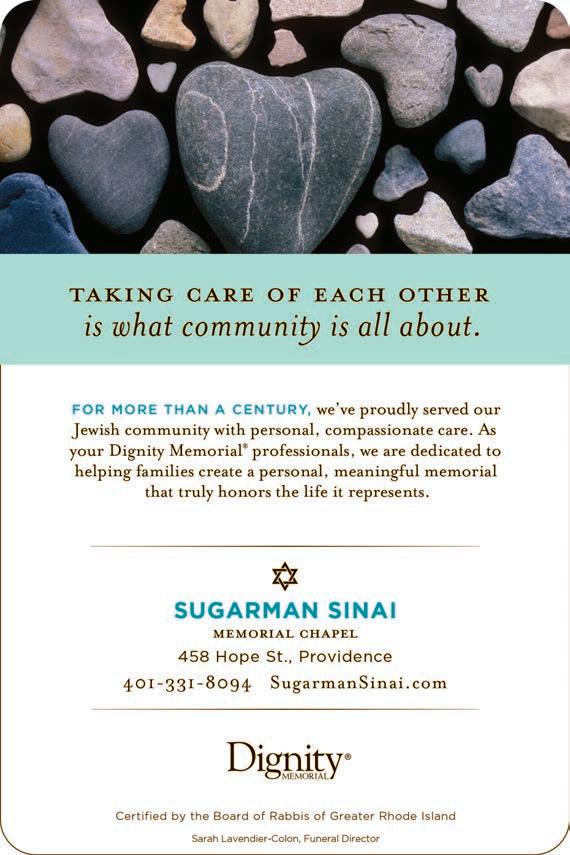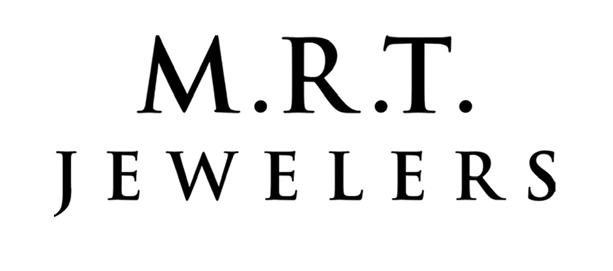Glorious Spring

We've got tips for growing a new garden
Micah Siva hopes you will nosh a little
Last call to add names to Holocaust Memorial





We've got tips for growing a new garden
Micah Siva hopes you will nosh a little
Last call to add names to Holocaust Memorial



EDITOR F ran Ostendorf
DESIGN & LAYOUT Alex Foster
ADVERTISING DEPARTMENT
Peter Zeldin | 401-421-4111, ext. 160 pzeldin@jewishallianceri.org
CONTRIBUTORS Cynthia Benjamin, Sarah Greenleaf, Robert Isenberg, Emma Newbery
COLUMNISTS Michael Fink, George M. Goodwin, Larry Kessler, Patricia Raskin, Rabbi James Rosenberg, Daniel Stieglitz
VOLUME XXXI, ISSUE III
JEWISH RHODE ISLAND(ISSN number 1539-2104, USPS #465-710) is published monthly except twice in May, August and September.
PERIODICALS POSTAGE PAID at Providence, R.I
POSTMASTER Send address changes to: Jewish Rhode Island, 401 Elmgrove Ave., Providence, RI 02906.
PUBLISHER
The Jewish Alliance of Greater Rhode Island, President/CEO Adam Greenman, Chair Harris Chorney, 401 Elmgrove Ave., Providence, RI 02906. 401-421-4111; Fax 401-331-7961

COPY DEADLINES: All news releases, photographs, etc., must be received on the Wednesday 10 days prior to publication. Submissions may be sent to: editor@jewishallianceri.org.
ADVERTISING: We do not accept advertisements for pork or shellfish. We do not attest to the kashrut of any product or the legitimacy of advertisers’ claims.
ON THE COVER : Breakfast radishes.
PHOTO | KENDRA DOE-MODE

FOR ME , March is a hopeful month. Signs of spring are everywhere. The weather is getting a little warmer. Light brightens our days a little longer. Purim and Passover are coming up quickly. And my mother’s birthday is toward the end of the month.
We’ve had a much warmer February than usual, and while we might enjoy a break from winter’s usual frigid temperatures, the warmth is not a good sign for our climate. I saw a troubling statistic the other day: This is the first February ever in this area with no daytime temperatures under 32 degrees. Can you image that? In one of the traditionally coldest months of the year, we have been above freezing for the entire month.

I suspect that there is still some cold weather to come, so try to be patient when your thoughts turn to gardening. But, I must admit, we are already thinking gardens at my house and are already tracking the progress of some shoots emerging in front of our home. And my husband’s massive summer garden project last year is just waiting for warm weather to show us what will pop up again and what will need a little push.
If you are interested in gardening this year – maybe
Here’s a great opportunity to write for us!
Are you looking for a chance to do a lot of writing (and get most of it published)? Want to work closely with an experienced editor? Want to explore a wide range of topics including Jewish life on college campuses while learning about journalism? We've got the opportunity for you!
Jewish Rhody Media is looking for interns. This is a great way to get your feet wet in print and digital publishing, and we promise you will learn a lot.
Primary responsibilities can include reporting and writing, editing, and/or photography for our print newspaper and digital newsletter. Work will also be published online at JewishRhody.org. We can adjust to your skills and interests. You will be closely involved in planning and executing coverage. And you’ll work with a friendly, professional staff.
We offer flexible hours and opportunity for a mix of on-site and remote work after an initial orientation period. We can work with your class schedule.
Interested? Send a resume and three work samples to: fostendorf@jewishallianceri.org Or: Fran Ostendorf, Editor, Jewish Rhode Island, 401 Elmgrove Avenue, Providence, RI 02906
even for the first time – Kendra Doe-Mode has some great tips for success on page 17. And for even more gardening advice, you can search for her March 2023 story at jewishrhody.com.
But first, let’s not forget about Purim, celebrated on the 14th of Adar. This is the joyous holiday that celebrates events told in the Megillah, or the Book of Esther. This leap year, Purim is celebrated in the second month of Adar, which explains why it falls at the end of March.
And a month later, we celebrate Passover, when we read about how the Jews survived the exodus from Egypt after generations of slavery. It is truly a story for spring, a story of hope.
My mother turns 95 at the start of spring. This is quite a milestone, which my family will gather to celebrate. To me, this offers hope for the family. She still checks in with all of us and is looking forward to finally meeting her newest great-granddaughters. And, honestly, she beats many of us in our family Wordle group. And she receives Jewish Rhode Island each month!
I am blessed to have a wide, blended family, all of whom are still active and sharp. We are lucky to be able to gather to celebrate milestones. I hope that other families are this fortunate, especially the families of the hostages still held in Gaza. Let’s hope that they too will have the opportunity to gather as complete families this spring.
Fran Ostendorf, Editor
Prof. Benny Bar-Lavi has only lived in Providence since last summer, but he is already a busy man. A course he co-taught at Providence College, “Jews and Christians in Dialogue,” was filled to capacity, as is his current offering, “Judaism as an Idea in Western Civilization.”
BAR-LAVI is Scholar-in-Residence in Jewish Studies and Jewish-Christian Relations at PC, and he is also teaching a course in Judaism and Christianity for Delve Deeper, the community initiative geared toward adult learners.
“The students here [at PC] are very curious,” says Bar-Lavi. “There’s a lot of civic responsibility. They’re hard-working and eager to learn. They’re very respectful of knowledge.”
Bar-Lavi and his wife, Ayala, arrived in Rhode Island with their two children, and a third was born in January. But he still finds time to work on his book, “Politics Against God: Judaism and Islam in the Political-Theological Discourses of Early Modernity.”
Bar-Lavi, 41, is also a sublime conversationalist, speaking softly, but firmly, and with a slight accent. He effortlessly holds forth on religion, history and ancient texts, but in a patient tone, as if his calendar is empty. Every sentence he speaks feels like an invitation to learn more.
Finding the common ground between Judaism and Christianity has been a running theme in Bar-Lavi’s life since his earliest years. He was born in Mexico City, and spent his first 14 years in Mexico’s enormous capital city. Bar-Lavi’s father was Israeli, and his mother Mexican; they met while both were studying at the Hebrew University of Jerusalem. The family spoke Hebrew at home, but just outside their door, a bustling world of Spanish Catholicism reigned.
“Mexico was profoundly Catholic,” Bar-Lavi remembers. “Catholicism fascinated me from the time I was a little kid.”
These interactions were mostly positive, he recalls.
“There was never violent antisemitism,” he says. “There may have been a ‘country club’ antisemitism, but there was never something [more hostile] in Mexico. There was a positive coexistence, a lot of
civility.”
As a teenager, Bar-Lavi moved with his family to Israel. He already knew the language and had a strong sense of his father’s Israeli identity, so the transition went smoothly, even for an adolescent from another hemisphere.
“Israel was very easy,” he remembers. “It felt like home very immediately.”
When Bar-Lavi began his studies at Hebrew University, he was drawn to the history of religious and political thought, especially in the “early modern” period, which is loosely defined as Western intellectual development from the late Middle Ages through the Enlightenment.
He observed how often leaders in Jewish and Christian scholarship would exchange ideas. A classic example is the 13th-century friar, philosopher and theologian Thomas Aquinas, who based many of his writings on close readings of Jewish theologian Moses Maimonides.
“The big debates, many of them surfaced for the first time in early modernity,” Bar-Lavi says. “We sometimes tend to think of Judaism and Christianity as having a separate evolution, a parallel development. But both religions continued to profoundly influence each other. This is something that is still ongoing.”
He pauses, and then adds, “This is also true for Islam.”
While he is as fluent as a native Rhode Islander, Bar-Lavi did not grow up speaking English, and he didn’t study the language in earnest until he entered college. The richest scholarship, he found, was composed in English. This opened a very large door, and Bar-Lavi went on to pursue a Ph.D. at the University of Chicago.
The Theology Department at Providence College has never hosted a scholar-in-residence before, but Bar-Lavi has already made a strong impression at the start of his twoyear appointment.
Last July, in anticipation of his
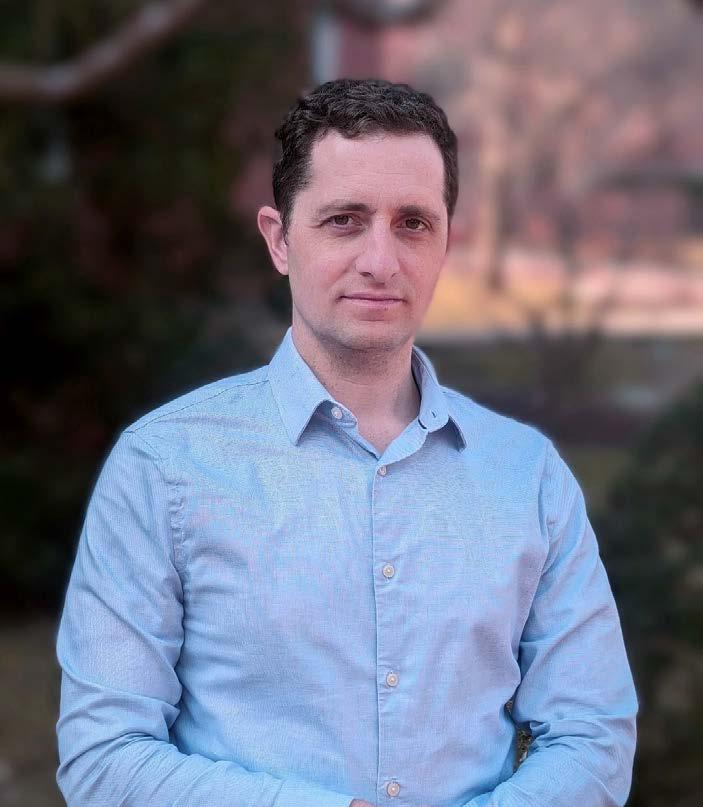 Benny Bar-Lavi
Benny Bar-Lavi
arrival, PC hosted an online lecture called “An Assembly for the Sake of Heaven: The New Testament and the Providential Role of Christianity in the Thought of Rabbi Jacob Emden.” This presentation, sponsored by the Jewish-Catholic Theological Exchange, seemed to set the stage for Bar-Lavi’s work in Rhode Island.
“It seemed like a great fit,” Bar-Lavi says of his appointment, “taking into account my whole academic trajectory and interests.”
In conversation, Bar-Lavi politely evades questions about his own Jewish identity.
“I usually don’t mix the two,” he says. “Whatever I do as a teacher and scholar should stand on its own.”
The thrust of his work, and the reason his family moved to Rhode Island, is to facilitate inter-religious conversations. This includes the current Delve Deeper course, “Two Nations in Your Womb: Jews and Christians in Late Antiquity,” which he is co-teaching with PC Prof. Arthur Urbano.
“There are many ways of understanding a text,” he says.
While the majority of his students at PC had Catholic upbringings, Bar-Lavi appreciates how enthusiastically his students engage in theological cross-pollination.
“Increased dialogue has historically proven very fruitful. It’s not a zero-sum game. It can reinforce their devoutness,” he says.
The Bar-Lavis have settled comfortably in Providence, despite the lack of sleep brought on by a newborn. Bar-Lavi stops himself from disparaging big-city Chicago, but it is clear he prefers a more intimate environment.
“Providence has this small-town feeling, in the best possible way,” he says. “The city, the campus, the Jewish community. There’s been a lot of kindness.”
ROBERT ISENBERG is a freelance writer and multimedia producer based in Cranston. His latest book, “Mile Markers: Essays on Cycling,” will be released in April.
THIS WEEK’S PARASHAH, Ki Tisa, takes us on a roller-coaster of high highs and low lows as it moves through a series of vignettes depicting the ongoing revelation at Sinai.
The parashah begins with Moses at Sinai’s peak, receiving instructions from God about how to take a census of the Israelite people. In order to be counted, every Israelite over the age of 20 must contribute half a shekel as an “atonement-offering” and in service of the sanctuary that they will construct together.
God tells Moses in no uncertain terms: “The rich are not to pay-more and the poor are not to payless than half a shekel when giving the contribution of YHWH, to atone for (L’khaper al nafshote ichem) your lives.”
every member of the community.
R. Hayyim ben Moshe ibn Attar, a Moroccan Kabbalist and Talmudist (18th century), suggests that the census that opens our parashah was offered to the Israelites through Moses because, “there was a need not only to count heads, but each person subject to the census had to contribute a half-shekel in order to atone for his share in that sin.”
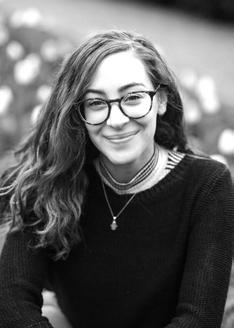
The census that God instructs Moses to follow requires equal buy-in from each participant. That is all well and good, but why would the Israelites need to atone for their lives in the middle of the revelation narrative?
The parashah answers this question for us two chapters later, as the focus of the scene shifts from Moses and God at the top of the mountain to the Israelites camped at its base.
After more than a month of waiting for Moses to return to them, the Israelites’ mounting anxiety has become intolerable. Still well-schooled in, and most comfortable with, the worship practices of the Egyptians they’d only just left behind, the Israelites pool their gold together and use it to create an idol that they can pray to, a concrete and quick-fix way to comfort their fears.
Before he has any reason to suspect that the Israelites have turned towards idolatry in his absence, Moses is equipped by God with a system for spiritual repair accessible to
Whether he knows it or not, Moses is entirely prepared for a situation just like the one that he encounters when he returns to the Israelite camp.
But when he finally makes his way down the mountain, with the sacred stone tablets in hand, Moses’ mind is not on the shekel system for offering atonement.
When he is confronted by the sounds and sights of the Israelites dancing around and worshiping the idol that they constructed, he’s overtaken by anger and frustration. In his outrage, Moses shatters the Godgiven tablets at the mountain’s base. He then makes his great disappointment, frustration and anger known to the Israelites; he destroys the calf and doles out a wave of severe punishments to his people before returning to God.
Even though Moses technically knew that he had a whole system for atonement and accountability written out in his very hands, his emotions overpower his ability to adhere to God’s strange new teachings. Finding himself not so unlike the very Israelites he’s rebuking, Moses shatters God’s first hand-hewn covenant, and thus implicates himself in the episode as well.
Turning away from his people, Moses wearily faces another trek

up the mountain to tell God what’s transpired.
What do we do with this strange progression of scenes? Why the up and down, back and forth, acknowledgment and aspiration back to back? Why include this moment when so much seems literally and spiritually broken in the midst of our most sacred moment of revelation and transformation as a people?
Ki Tisa is a parashah of rupture and repair that dances between the individual and the collective, past and present, the pieces and the whole. We learn from the vignettes in Ki Tisa that we must actively buy into the larger project of taking care of one another, and that each of us is responsible for holding the broken pieces of our collective shortcomings together.
We are reminded of the importance of recognizing the ways in which our (often contextually valid and completely understandable!) emotional reactions to our circumstances can lead us away from the lives we actually want to be living, personally and collectively. We are reminded that the missteps, the broken shards, the outbursts and the many treks up and down the mountain are also Torah, that these too are crucial parts of our sacred story to be carried with us into whatever iteration of collective, covenantal freedom we learn to build together.
This Shabbat Shekalim, we’re called to consider the sacred weight, freedom and privilege of accountability. We’re called, each of us and all of us, to pick up our broken pieces and to take ownership of the times when we let our anxieties lead us to the comfort of quick fixes and away from our communal goals and values.
We’re called to consider the material and spiritual richness that comes from a genuine collective buy-in, of the possibilities that emerge when each and every member of a com-
munity is counted with equal value – and counted on for an equal share of responsibility.
The spiritual energy of this Shabbat is one that holds space for an unflinching acknowledgment of what has been, with an unwavering investment and faith in what still might be.
On Shabbat Shekalim, may we merit the blessing of finding it within ourselves to hold this dual space, and to channel it towards sacred offerings to the sanctuaries we might yet make of this world together.
RABBI HEATHER SHORE , of Providence, is Director of Community Engagement, Tzedek Box.
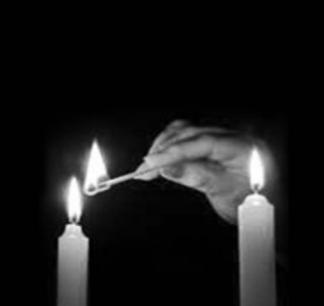
Candle lighting times March 2024
Greater Rhode Island
March 1 5:17pm
March 8 5:25pm Daylight Savings Time Ends
March 15 5:33pm
March 22 6:41pm
March 29 6:48pm

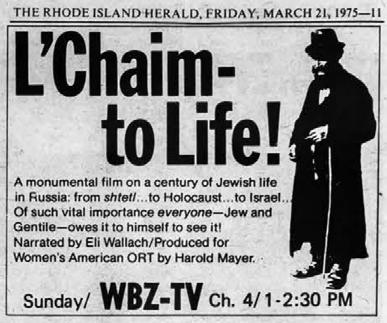
Few Americans had ever heard the phrase “L’Chaim” until 1971, when the musical “Fiddler on the Roof” became a blockbuster movie and won three Academy Awards. The song “L’Chaim” remains one of the most beloved dance numbers in Broadway history, familiarizing an entire generation with the Hebrew exclamation. Four years later, Boston station
WBZ broadcast the documentary “L’Chaim - to Life!”, a history of modern Judaism narrated by prolific character actor Eli Wallach. The documentary, which was produced for Women’s American ORT, covers much of the same history as “Fiddler,” but goes on to cover the Holocaust and founding of Israel, which had taken place only 20-odd years earlier.
Newspaper courtesy Rhode Island Jewish Historical Association
Ongoing
Kosher Senior Café and Programming. In-person lunches 11 a.m.-1 p.m. Monday – Thursday at the Dwares JCC, 401 Elmgrove Ave., Providence; Fridays at Temple Sinai, 30 Hagen Ave., Cranston. In-person (and on Zoom most days except Fridays) programming from 11 a.m.-noon followed by lunch and discussion noon-1 p.m. “Spring Fling – Purim Party” on Friday, 3/22. Every Wednesday is chair yoga with Neal from 11-11:45 a.m. Seniors aged 60 and older as well as younger adults with a disability of all faiths and backgrounds are welcome. Suggested donation: $3 per lunch The Kosher Senior Café is a program of Jewish Collaborative Services and is supported by the Jewish Alliance of Greater RI and Blackstone Health. Information and RSVP, Neal at neal@jfsri.org or 401-421-4111, ext. 107.
Project Shoresh Ladies’
Partners in Torah Night. Sundays
7:45-8:45 p.m. Providence Hebrew Day School, 450 Elmgrove Ave., Providence. Partner-based study group. On-site facilitators available. Free. Information, projectshoresh. com.
Let’s Talk Hebrew! Alef (Beginners). Mondays 5:30-6:30 p.m. Current session thru 4/8. Dwares JCC, 401 Elmgrove Ave., Providence. An introduction to alef bet and basic Hebrew phrases. Will work with a book. Cost: $125 (scholarship available). Information, Toby Liebowitz at tobyaane@gmail. com.
Writing Community. Mondays
6-7:30 p.m. Current session thru 3/25. Dwares JCC, 401 Elmgrove Ave., Providence. Instructor Jim Levanos will provide lessons, guidance and creative writing prompts to help writers find their voice. 4-week block: JCC
Members: $25 | Non-members: $35; individual class: JCC
Members: $8 | non-members: $10. Information, Devorah Phillips at dphillips@jewishallianceri.org or 401-421-4111, ext. 163.
Let’s Talk Hebrew! Bet (Advanced Beginners). Mondays 6:30-7:30 p.m. Current session thru 4/8. Dwares JCC, 401 Elmgrove Ave., Providence. Basic Hebrew reading skills and beginning Hebrew conversation. Will work with a book. Cost: $125 (scholarship available). Information, Toby Liebowitz at tobyaane@gmail. com.
Let’s Talk Hebrew! Daled (Advanced Intermediate). Mondays 6:30-7:30 p.m. Current session thru 4/8. Virtual only. For
those able to converse in present, past and beginning future tenses, and who can read and comment on easy Hebrew stories and newspaper articles. Will work with a book. Cost: $125 (scholarship available). Information, Toby Liebowitz at tobyaane@gmail.com.
Delve Deeper “Two Nations in your Womb: Jews and Christians in Late Antiquity.” Mondays 7-9 p.m. Thru 3/18. Explore how Christianity and Rabbinic Judaism developed, in parallel and in conversation, from ca. 200 to 600 C.E. Presented from Jewish and Christian perspectives. Instructors: Benny Bar-Lavi, scholar-in-residence in Jewish studies and Jewish-Christian relations, and Arthur Urbano, professor of theology, both at Providence College. Via Zoom. Cost: $175 (scholarships available). Information, www.delvedeeper.org.
Temple Emanu-El Mahjong. Tuesdays 11 a.m.-1 p.m. 99 Taft Ave., Providence. Both new and advanced players are welcome. Drop-ins welcome. Information, Shosh@teprov.org.
Let’s Talk Hebrew! Gimmel (Intermediate). Tuesdays 6:307:30 p.m. Current session thru 4/9. Dwares JCC, 401 Elmgrove Ave., Providence. Offered both in person and virtually. For those who can read and write Hebrew, and who can converse using basic vocabulary in the present and some past tense. Cost: $125 (scholarship available). Information, Toby Liebowitz at tobyaane@gmail. com.
Let’s Talk Hebrew! Hey (Advanced). Tuesdays 6:30-7:30 p.m. Current session thru 4/9. Dwares JCC, 401 Elmgrove Ave., Providence. For those who can speak Hebrew easily in all tenses, can read articles and poetry and can discuss a variety of current topics. Cost: $125 (scholarship available). Information, Toby Liebowitz at tobyaane@gmail.com.
Pottery Classes. Wednesdays 6-8 p.m. Current session thru 3/20. Dwares JCC, 401 Elmgrove Ave., Providence. Taught by long-time potter and ceramics teacher Sally Merino, classes will combine throwing on the potter’s wheel with hand-building methods to create exciting works. For all experience levels. Ages 18+. Information, Devorah Phillips at dphillips@ jewishallianceri.org or 401-4214111, ext. 163.
Teen Nights at Temple Beth-El. Most Thursdays 6-8 p.m. 70 Orchard Ave., Providence. Information, Jillian Brosofsky at jbrosofsky@temple-beth-el.org or
401-331-6070, ext. 100.
Temple Torat Yisrael Virtual Kabbalat Shabbat Songs & Torah Services. Fridays 5:45-6:30 p.m. By Zoom only. Information, temple@toratyisrael.org.
Temple Sinai Shabbat Evening Service. Fridays 6-7 p.m. 30 Hagen Ave., Cranston. Song, prayer and reflection. With Rabbi Jeffrey Goldwasser and Cantor Deborah Johnson. Information, dottie@ templesinairi.org or 401-942-8350.
Cape Cod Synagogue Shabbat Services. Fridays 7 p.m., except second Friday of the month 6:30 p.m. when family Shabbat services take place. 145 Winter St., Hyannis, Mass. With Rabbi David Freelund. In-person and livestreamed on website, Facebook, Cape Media, YouTube and Community Television Comcast channel 99. Information, 508-775-2988 or capecodsynagogue.org.
Temple Torat Yisrael Virtual & In-Person Saturday Morning Shabbat Services. 9:30-10:30 a.m. 1251 Middle Road, East Greenwich. In-person with Zoom available. Information, temple@toratyisrael. org.
Temple Sinai Shabbat Breakfast & Torah Study. Saturdays 9:30-11 a.m. 30 Hagen Ave., Cranston. Breakfast followed by interactive discussion at 10 a.m. with Rabbi Jeffrey Goldwasser or others in the community. Breakfast RSVP and information, dottie@templesinairi. org or 401-942-8350.
Temple Habonim Torah Study. Most Saturdays 10-11 a.m. Rabbi Howard Voss-Altman leads weekly Torah study on current portion. Via Zoom. Information, Adina Davies at office@templehabonim.org or 401-245-6536.
Cape Cod Synagogue Shabbat Services. Saturdays 10:30 a.m. 145 Winter St., Hyannis, Mass. With Rabbi David Freelund. In-person and livestreamed on website, Facebook and YouTube. Information, Cape Cod Synagogue at 508-7752988 or capecodsynagogue.org.
Temple Sinai Shabbat Morning Service. Saturdays 11 a.m.-noon (10:30 a.m. when celebrating a Bar or Bat Mitzvah). 30 Hagen Ave., Cranston. In-person and via Zoom. Information, templesinairi.org or Dottie at 401-942-8350.
Friday | March 1
Temple Beth-El K’tantan Shabbat. 5:30 p.m. 70 Orchard Ave., Providence. Information, Jillian Brosofsky at jbrosofsky@temple-beth-el.org or 401-331-6070, ext. 100.
Temple Habonim Tot & Family Shabbat. 5:45 p.m. 165 New Meadow Road, Barrington. 5:45 p.m. Tot Shabbat: Interactive service for families with young children. Experience the joy of Shabbat through music, story and prayer; Pizza Dinner at 6:15 p.m.; 6:45 p.m. Family Service: One-hour restorative service designed for both families with school-aged children as well as those without. Information, office@templehabonim.org or 401-245-6536.
Saturday | March 2
Temple Beth-El Torah Study. 9 a.m. 70 Orchard Ave., Providence. Join us for Saturday morning Torah study. Information, Jillian Brosofsky at jbrosofsky@temple-beth-el.org or 401-331-6070, ext. 100.
Temple Torat Yisrael Virtual & In-Person Saturday Morning Shabbat Services. 9:30-10:30 a.m. 1251 Middle Road, East Greenwich. In-person with Zoom available. Information, temple@toratyisrael. org.
Arts Emanu-El Presents RI Premiere of Film “Four Winters.” 7:30-9:30 p.m. 99 Taft Ave., Providence. This award-winning documentary weaves together rare archival footage with the observations of eight Jewish partisans who, as teenagers, fought against the Nazis from the forests of Eastern Europe. Filmmaker and producer Julia Mintz will field questions. Light refreshments. Information including ticket prices, Temple Emanu-El at 401-331-1616.
Temple Torat Yisrael “Laugh the Night Away 2.” 8 p.m. 1251 Middle Road, East Greenwich. Enjoy a fun night out with comedians Rhonda Corey, Skip Daniels and Marc Gerber; hors d’oeuvres, light dinner and drinks; prizes, lottery tree, 50/50 cash raffle, restaurant gift cards, gift baskets; live raffle items and silent auction items. $55 per ticket. Information, deanna@ toratyisrael.org or 401-885-6600.
Thursday | March 7
Arts Emanu-El Communal Singing to Bring Forth Light. 7:30-9 p.m. 99 Taft Ave., Providence. This second event in the “Light in the Midst of Darkness” series will be an evening of music, song and sharing led by members of Temple Emanu-El. Attendees will learn and sing a mix of songs in English and Hebrew. All are welcome. Suggested donation: $5. Information, Temple Emanu-El at 401-331-1616.
Friday | March 8
Temple Beth-El Sisterhood Shabbat Service. 7 p.m. 70
Orchard Ave., Providence. Join Temple Beth-El’s Sisterhood for Friday evening services. Information, Jillian Brosofsky at jbrosofsky@temple-beth-el.org or 401-331-6070, ext. 100.
Saturday | March 9
Temple Beth-El Shabbat Morning Service/Adult B’Not Mitzvah. 9 a.m. 70 Orchard Ave., Providence. Shabbat morning service celebrates adult B’Not Mitzvah. Information, Jillian Brosofsky at jbrosofsky@temple-beth-el.org or 401-331-6070, ext. 100.
Temple Torat Yisrael Bar Mitzvah Service. 10 a.m.-12:30 p.m. 1251 Middle Road, East Greenwich. In-person with streaming available. Information, temple@toratyisrael. org.
Arts Emanu-El Concert Featuring Duo Mantar. 7:30 p.m. 99 Taft Ave., Providence. Virtuosi classical guitarist Adam Levin and mandolinist Jacob Reuven will perform “Rachel’s Mandolin” honoring Rachela ZelmanowiczOlewski, a Jewish mandolinist from Poland who played in the Auschwitz women’s orchestra. Her life story of survival at Auschwitz, liberation at Bergen-Belsen and settlement in Israel forms the backdrop for the music. Light refreshments. Information, Temple Emanu-El at 401-331-1616.
Sunday | March 10
Day at the J. 8:30 a.m.-2 p.m. Dwares JCC, 401 Elmgrove Ave., Providence. Family swim, jumpy house, open tumbling (ages 4 and under), group ex classes (Spin, Zumba, Restorative Yoga), Women’s Self-Defense (Price: $15 | Members: $12), open gym and Thanka-Thon Brunch (see below). For schedule of activities, see Upcoming Events at Jewishallianceri.org. Information, Michelle Cicchitelli at mcicchitelli@jewishallianceri.org.
Jewish Alliance Thank-a-Thon Brunch. 10 a.m.-noon. Dwares JCC, 401 Elmgrove Ave., Providence. Make thank you calls, send thank you texts and write thank you notes to those in the community who donate. Brunch, scripts, stamps and everything you need to write and text provided. BYOP (bring your own phone). Information, Jennifer Zwirn at jzwirn@ jewishallianceri.org or 401-4214111, ext. 102.
Tuesday | March 12
Ring Carving Workshop. 6-8 p.m. Dwares JCC, 401 Elmgrove Ave., Providence. Julia Sullivan of RA HA Jewelry will walk you through the basics of carving a simple wax
ring band to be cast in sterling silver. Your ring will be shipped to you later. Limited to 6 participants. Members: $125 | Non-members: $150. Information, Devorah Phillips at dphillips@jewishallianceri.org or 401-421-4111, ext. 163.
Wednesday |March 13
Israeli Culture Series: “Golda” Screening. 6:30 p.m. Dwares JCC, 401 Elmgrove Ave., Providence. In this thriller set during the tense 19 days of the 1973 Yom Kippur War, Israeli Prime Minister Golda Meir (Helen Mirren) is faced with the potential of Israel’s destruction. Free. Information, Elihay Skital at eskital@jewishallianceri.org or 401864-3786.
Friday | March 15
Temple Beth-El Shabbat Hallelu Service. 6:30 p.m. 70 Orchard Ave., Providence. Music-filled Friday night Shabbat service. Information, Jillian Brosofsky at jbrosofsky@temple-beth-el.org or 401-331-6070, ext. 100.
Saturday | March 16
Temple Beth-El Torah Study. 9 a.m. 70 Orchard Ave., Providence. Saturday morning Torah study. Information, Jillian Brosofsky at jbrosofsky@temple-beth-el.org or 401-331-6070, ext. 100.
Temple Torat Yisrael Virtual & In-Person Saturday Morning Shabbat Services. 9:30-10:30 a.m. 1251 Middle Road, East Greenwich. In-person with Zoom available. Information, temple@toratyisrael. org.
Sunday | March 17
The Women’s Alliance presents: Community Purim Bake with PJ Library. 1-3 p.m. Temple Emanu-El, 99 Taft Ave., Providence. Bake, taste, package and deliver hamantaschen to participants of Jewish Collaborative Services’ Kosher Senior Café, Jewish Eldercare of RI and Tamarisk Assisted Living Residence. Design your mask and grogger while making new friends. Free. Information and RSVP (by 3/8), Jana Brenman at jbrenman@jewishallianceri. org.
Friday | March 22
Temple Beth-El Purim Shabbat Service. 7 p.m. 70 Orchard Ave., Providence. Information, Jillian Brosofsky at jbrosofsky@temple-beth-el. org or 401-331-6070, ext. 100.
Saturday | March 23
Temple Beth-El Torah Study. 9 a.m. 70 Orchard Ave., Providence. Saturday morning Torah study. Information, Jillian Brosofsky at jbrosofsky@temple-beth-el.org or 401-331-6070, ext. 100.
Temple Torat Yisrael Virtual & In-Person Saturday Morning Shabbat Services. 9:30-10:30 a.m. 1251 Middle Road, East Greenwich. In-person with Zoom available. Information, temple@toratyisrael. org.
Temple Beth-El K’tantan Purim. 5:45-6:30 p.m. 70 Orchard Ave., Providence. For families with young children. Information, Jillian Brosofsky at jbrosofsky@temple-beth-el.org or 401-331-6070, ext. 100.
Temple Beth-El Purim Spiel. 7-9 p.m. 70 Orchard Ave., Providence. Join us for Shushan Bunch, a Purim Spiel with classic sit-com theme songs. Information, Jillian Brosofsky at jbrosofsky@templebeth-el.org or 401-331-6070, ext. 100.
Tuesday | March 26
Behind the Book: “On Brand: Shape Your Narrative. Share Your Vision. Shift Their Perception.” 7 p.m. Dwares JCC, 401 Elmgrove Ave., Providence. Award-winning marketer, bestselling author, podcaster and personal branding expert Aliza Licht will discuss her new book. Followed by a Q&A and book signing. Refreshments served. Members: $10 | Non-members: $15. Information, Devorah Phillips at dphillips@jewishallianceri.org or 401-421-4111, ext. 163.
Wednesday | March 27
“Religion and Politics in the Middle East.” 4:30-5:30 p.m. This workshop focuses on the religious landscape of Egypt, Israel, Lebanon
and Iran, and considers the ways religion and politics are intertwined. For K-12 educators. Via Zoom. Led by the Institute for Curriculum Services in partnership with the Jewish Alliance of Greater RI and the Sandra Bornstein Holocaust Education Center. Information, Dori Gerber at dgerber@icsresources. org.
Touro Fraternal Association
Open House. 6-9 p.m. Topgolf Rhode Island, 120 Sockanosset Cross Road, Cranston. Open House includes a free barbecue dinner and free golf for potential male members ages 18-52. Information, tourofraternal.org, info@tourofraternal.org or 401-785-0066.
Friday | March 29
Jewish Alliance Hosts Blood Drive. 8:30 a.m.-12:30 p.m. Dwares JCC, 401 Elmgrove Ave., Providence. Donations by appointment. Walk-ins welcome if availability permits at time of arrival. Eat, hydrate, bring identification with you. Register at donate.ribc.org/donor/schedules/sponsor_code. Sponsor Code is 1528. Information, Stephanie Hague at shague@jewishallianceri. org or 401-421-4111, ext. 127.
Joint Reform Shabbat Service. 7 p.m. Temple Beth-El, 70 Orchard Ave., Providence. Temple Beth-El is hosting the annual joint Reform Shabbat. Information, Jillian Brosofsky at jbrosofsky@temple-beth-el. org or 401-331-6070, ext. 100.
Saturday | March 30
Temple Beth-El Torah Study. 9 a.m. 70 Orchard Ave., Providence. Saturday morning Torah study. Information, Jillian Brosofsky at jbrosofsky@temple-beth-el.org or
401-331-6070, ext. 100.
Temple Torat Yisrael Virtual & In-Person Saturday Morning Shabbat Services. 9:30-10:30 a.m. 1251 Middle Road, East Greenwich. In-person with Zoom available. Information, temple@toratyisrael. org.
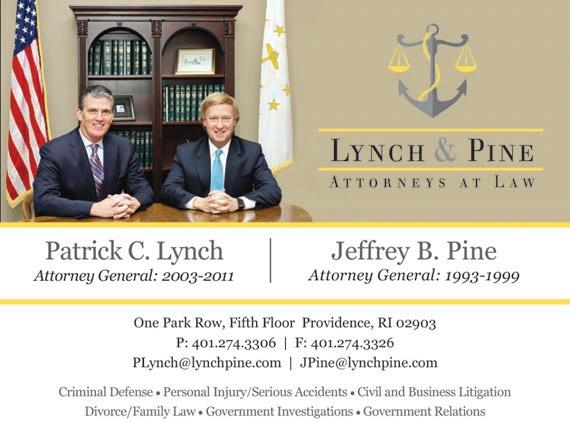

Fifteen years ago, a fifth-grade teacher at a charter school had a vision for bringing the scope of the unimaginable horror of the Holocaust across to her fifth-grade students. That teacher was Charlotte Sheer and the school was the Foxboro Regional Charter School, in Foxboro, Massachusetts.
SHEER’S STUDENTS were reading Lois Lowry’s children’s book about the Holocaust, “Number the Stars,” which tells the story of a Danish girl who helps smuggle Jewish families out of German-occupied Denmark during World War II.
During discussions of the book and the Holocaust, Sheer wanted to devise a way of bringing the enormity of the Shoah home to the students. In an interview I did with Sheer for a story in 2017, she shared how the class discussions
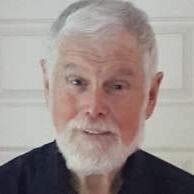 LARRY KESSLER
LARRY KESSLER
blossomed into the Holocaust Stamps Project: “With a number so unfathomable, I challenged the class to try collecting one postage stamp for every person who perished in the Holocaust. Why stamps? They’re small and accessible. The intent was to use stamps as a symbol for something of value being discarded, as millions of people’s lives were thrown away by the Nazis. “By June that year
[2009], they’d struggled to amass about 25,000 stamps. The children were just beginning to sense the enormity of the number 11,000,000. Soon it developed into the Holocaust Stamps Project, and it became a regular component of the school’s Community Service Learning program.”
The project eventually took off, and soon the entire K-12 school enthusiastically got behind the goal of collecting 11 million stamps; 6 million to represent the number of Jews slaughtered by the Nazis and 5 million to represent those of other nationalities and ethnicities targeted by Adolf Hitler and

his minions. Eventually, stamps poured in from 48 states, the District of Columbia and 29 countries. In 2017, the project surpassed 11 million stamps. The next big announcement related to the project came when the stamps and 18 poignant collages, fashioned from some of the stamps and featuring people and moments from the Holocaust, were chosen for a permanent exhibit at the American Philatelic Center, in Bellefonte, Pennsylvania. “A Philatelic Memorial of the Holocaust,” featuring the Holocaust stamps, finally opened to the public last June, after numerous delays due to the pandemic.

That was thought to be the last stage of the project, but as it turned out, it wasn’t, as the late radio commentator Paul Harvey was known for saying, the
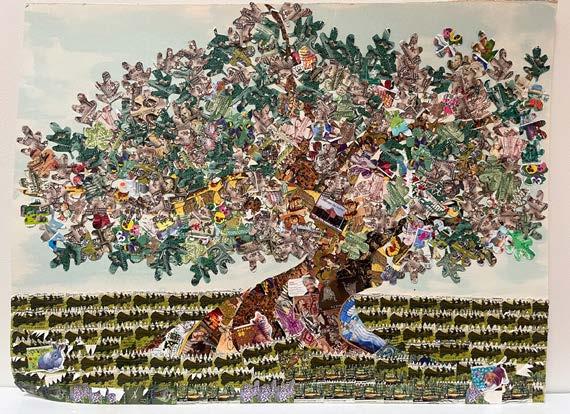
CONTINUED FROM PAGE 8
rest of the story.
That took place at the charter school on Jan. 26, the day before the observance of International Holocaust Remembrance Day, when a 5-foot-by-3-foot plastic structure called The Cube was unveiled in the middle school’s lobby.
Filled with 1.5 million stamps, the exhibit, Sheer said, memorializes the 1.5 million children killed during the Holocaust.
I conducted a brief email Q-and-A with Sheer on the significance of the latest exhibit:
Was the vision of The Cube display in the lobby, honoring the memories of the 1.5 million children killed in the Holocaust, always the plan?
Long before the American Philatelic Society offered permanent stewardship of the Holocaust Stamps Project (HSP) at their headquarters in Bellefonte, Pa., [former student life adviser] Jamie Droste and I had discussed and drafted several ideas for how to display the 11 million stamps.
When we considered the weight of, and space needed to house, just 1 million of the paper pieces, it became clear that cube-shaped containers would be the most practical.
The Cube seems to be a most fitting and appropriate tribute to the project. What are you feeling now that this apparently final tribute is in place?
Jamie and I shared a vision for the installation of a display within the school, where 1.5 million stamps would honor the
memories of every Jewish child-victim of Hitler’s evil intentions. Seeing The Cube strategically placed in the middle school lobby, where students, staff, parents and visitors would notice it daily, gives me hope that its presence will raise awareness and generate questions as springboards for conversations not only about the history, but also the importance of acceptance and tolerance.
Could you share your thoughts or reflections at this moment, some 15 years after you started this project, about its importance and relevance at this time when antisemitism has reached frightening levels?
The Holocaust Stamps Project began in my classroom in 2009 amidst, what the press described at the time as, a rising global wave of antisemitism stemming from anti-Israel sentiment. Sadly, the HSP’s relevance as a resource for understanding the roots of antisemitism and all forms of intolerance is no less critical today.
The motto at Foxboro Regional Charter School is ‘Enter to Learn, Exit to Lead.’ With its highly diverse student population, my hope is that teachers will maximize what The Cube represents to develop lessons that promote understanding and respect for differences.
LARRY KESSLER (larrythek65@gmail.com) is a freelance writer based in North Attleboro. He blogs at larrytheklineup.blogspot. com.

The Rhode Island Jewish Historical Association and The Sandra Bornstein Holocaust Education Center invite you to a free showing of
April 7, 2024 10 a.m.
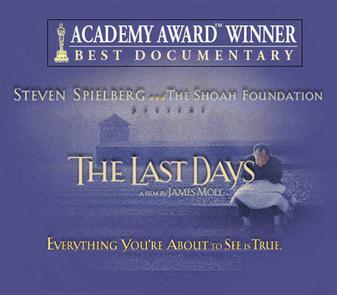
Dwares JCC
401 Elmgrove Ave.
Providence, RI 02906
This 1998 Academy Award-winning feature documentary film shares the remarkable stories of five people – a grandmother, a teacher, a businessman, an artist and a U.S. congressman – as they return from th e United States to their hometowns and to the ghettos and concentration camps that once imprisoned them.
The screening will be followed by a Q&A with Michael Cahana, the son of one of the survivors in the movie and a former associate rabbi at Temple Beth-El, in Providence. Light refreshments will be served
Register online at rijha.org/events or through the QR code

info@rijha.org | 401-331-1360 | rijha.org
The Jewish Alliance of Greater Rhode Island stands with Israel and has opened an emergency fund to provide immediate financial assistance and relief to victims of terror and war.
100% of your donation will go toward supporting victims of terror and addressing the unprecedented levels of trauma caused by these horrific attacks.
To support the fund, visit JewishAllianceRI.org or scan the QR Code below.


The Israel Emergency Fund is chaired by Cindy & Mark Feinstein.


401 Elmgrove Avenue, Providence
Having always loved bookstores, I can’t imagine a world without them. Surely my chairmanship of Temple Beth-El’s splendid Braude Library would already have come to an end!
So much for People of the Book and the Book of Life!
AS A KID, perhaps without even knowing it, I had several favorite bookstores near my home in Los Angeles. One was Campbell’s, in Westwood Village, a stone’s throw from the University of California, Los Angeles. Although primarily an enclave for students and professors, it must have had an inviting children’s section.
Another favorite was Hunt er’s, in Beverly Hills, where my great-aunt and great-un
took my older twin, Ted, and me to enjoy looking around.
Once my sixth-grade teacher scolded me for my fascination with Perry
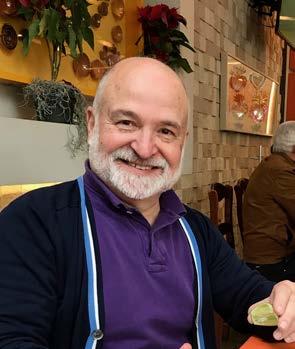

comic books. Indeed, we were never allowed to bring any to summer camp and were discouraged from reading those belonging to bunkmates.
Around this time, however, I became devoted to Mad Magazine, which Mom and Dad somehow accepted as a more creative publishing endeavor. How ironic that, in 2001, I wrote an article for an academic journal, Modern Judaism, about cartoons and Jews!
My parents subscribed to numerous magazines and, eventually, to two daily newspapers, but they weren’t keen on visiting bookstores – perhaps because their lives were too full. But Dad, who much enjoyed reading history, politics and biographies, was a member of the Book-ofthe-Month Club. Mom was a wizard in our kitchen, but she didn’t collect cookbooks. Yet one of her treasures was an early edition of “The Settlement Cook Book,” a collection of Jewish recipes

in 1910.
My family’s bookcases included many other heirlooms, including an 1895 edition of “The Union Prayer-Book (Reform).” Yet, I can’t recall what happened to one of my favorite Bar Mitzvah presents, a complete edition of Arthur Conan Doyle’s Sherlock Holmes mysteries.
By the time I was a college student, in suburban Lake Forest, Illinois, I was becoming a serious bibliophile. I was especially fond of the magnificent bookstore at the Art Institute of Chicago, but I also began subscribing to a series, “The Great Museums of the World,” which was published by Newsweek magazine. I still have about 25 volumes, with stunning color photos, which I often use for reference.
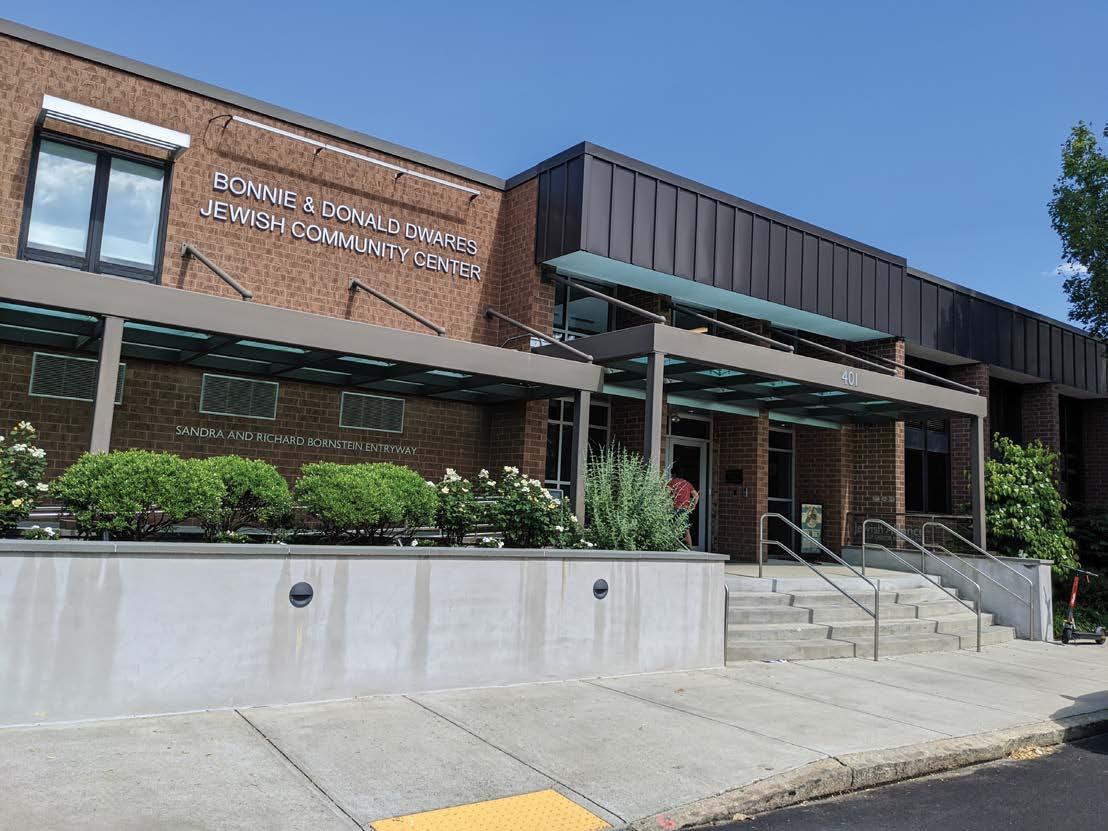
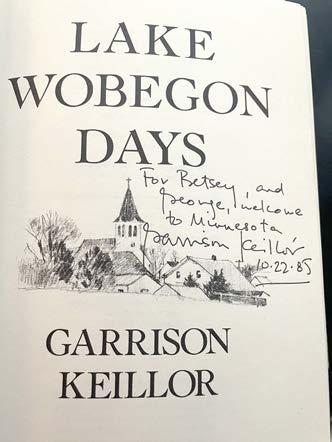
After Molly, our first child, was born, Betsey and I wanted to move closer to my family or hers, near Boston.
I definitely needed access to an impressive art museum, numerous historical sites and a bounty of good bookstores.

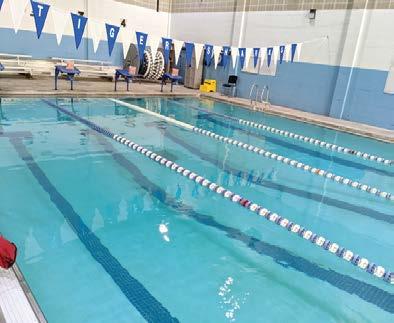
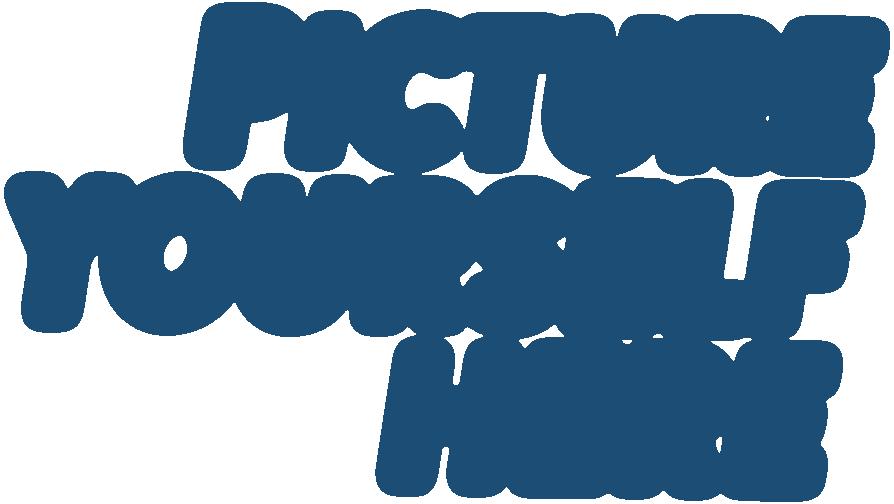



As a graduate student in New York City, and later near San Francisco, I continued to buy catalogs of art museums’ permanent collections and temporary exhibitions, and I’ve saved most of these too.
While teaching art history back in L.A., I became practically addicted to Hennessey & Ingalls, which is not a cocktail but a bookstore specializing in art and architecture books.
I was not yet fascinated by Jewish books. This occurred through further graduate studies at the L.A. campus of Hebrew Union College. But I never found a Jewish bookstore with a broad enough sweep of Jewish history for me.
In 1985, before moving to St. Paul, Minnesota, my wife, Betsey, and I gave many books to my high school library, where I would eventually establish an endowed acquisitions fund.
In the Twin Cities, we enjoyed many bookstores, especially at its wonderful art museums. A favorite store in St. Paul was Odegard’s, not far from F. Scott Fitzgerald’s birthplace, where we occasionally bumped into Garrison Keillor and chatted about his locally-produced radio show, “A Prairie Home Companion,” or his latest story collection or novel.
For perhaps two decades I was enamored of the Brown Bookstore, but it seemed eventually to devolve into a coffee and souvenir shop. Sadly, both the RISD Museum and the RISD Store also sold fewer and fewer books. Perhaps one reason was the proliferation of chain stores, including Borders, which enlightened the Providence Place mall until 2011.
There’s one obvious reason why Borders closed: It had remaindered a dozen copies of “The Jews of Rhode Island,” which I had co-edited for the Rhode Island Jewish Historical Association and Brandeis University Press in 2004!
Fortunately, I have grown to rely on two wonderful shops in the East Side of Providence, which I visit almost weekly. For new books, especially paperbacks, I thoroughly enjoy Books on the Square, near Wayland Square, which has been a vital force in our community since 1992. Established by my Beth-El friends, Sarah and Richard Zacks, it has been owned and operated by Merc and Rod Clifton for more than a dozen years.
You may recall the Providence Bookstore Café, which was located in the basement of the Wayland Manor. In 1996, its manager, Kristin Sollenberger, a Michigander who studied painting at the
SURELY I CAN’T be the first to note the close spelling of “Hamas” and the villainous “Haman,” who is so evil that we use rattles to drown out his very name.
S KETCHBBut the resemblances stop right there, because we merely mock the bad guy in the Purim tale. I mean, 3 year olds like to dress up as the monster who has a
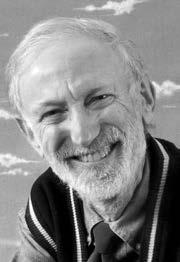 MIKE FINK
MIKE FINK
plan to destroy the Jews. And a pretty girl rescues her grown-up cousin, Mordecai, by winning a beauty contest simply by coming out of hiding and announcing her identity with nervous, heroic pride. This year, we must take Purim much more seriously and literally. It is a plural word,
like “dice,” that invites both daring and courage. My late, beloved elder brother had one grandchild, Julia, who has dual citizenship, Israeli and American. She dwells in Tel Aviv, and a faithful friend of our family, on a useful journey to our Holy Land, made it a major point to visit our Julia.
So, with my deep gratitude to Suzy Sikov, and my total admiration for our brilliant and bold community hero, Providence
AT THE END of January, I attended a seder on Tu B’Shevat, the Jewish new year for trees. The 15th of Shevat marks a turning point, when underneath the cold air, the sap of the trees is rising, readying for spring.
This was my first time celebrating trees at a seder. I enjoyed eating the fruits, including figs, pomegranates, dates and olives, and learning more about the meaning of trees and the fruits and how they impact us.
Since ancient days, trees have been used to represent life, growth, wisdom and prosperity, and they have the power to inspire us with a sense of gratitude and protection. When I walk through an allée, or an avenue of trees, I examine the shapes and branches and often compare them to people.
is a beautiful picture book of trees that ascribes personality traits to them, as well as quotes.
At Aish.com, there is a great in-depth article, “Man is a Tree,” by Rabbi Shraga Simmons. The rabbi writes, “The Torah compares a person to a tree. Roots, branches and leaves.”
He goes on to write that humans are like trees because we both need the four basic elements – soil, water, air and fire – to survive.
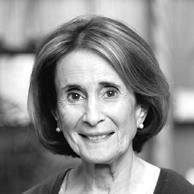 PATRICIA RASKIN
PATRICIA RASKIN
Years ago, I interviewed Joan Klostermann-Ketels, author of “PersonaliTrees: Let the Human Spirit Awaken in the Presence of Trees,” which
Journal columnist Mark Patinkin, I dedicate this unusual Purim piece to those among us who nobly go there, in this season of authentic anxiety.
MIKE FINK (mfink33@ aol.com) is a professor emeritus at the Rhode Island School of Design.
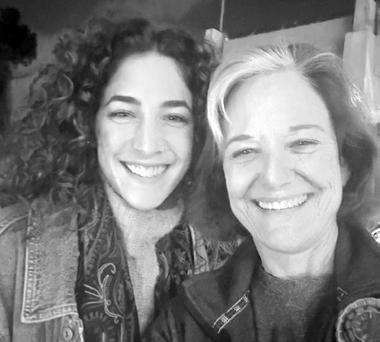
That is, we require the “soil” of a strong home base, water to stay hydrated, air to breathe for our life force, and fire or another source of warmth.
As winter moves into spring and our human cycles and rhythms change, trees also change, moving from reduced water intake in the winter to hydrating themselves as the weather warms.
In another article at Aish. com, “Tu B’Shvat: Three Inspiring Messages,” Adam Ross writes, “Tu B’Shvat’s
message is not to let the difficult non-productive times in our lives define us. Like trees, we too live our lives in cycles, like the moon that waxes and wanes, shrinking and disappearing before growing and becoming full.
“Life is a cycle, spring is just around the corner and as the Talmud states, better times can come ‘in the blink of an eye.’ As we witness the start of the transition from winter to spring, Tu B’Shvat teaches and builds our patience and trust that good times are ahead.”
PATRICIA RASKIN , owner of Raskin Resources Productions, is an award-winning radio producer, business owner and leader. She is on the board of directors of Temple Emanu-El, in Providence, and is a recipient of the Providence Business News 2020 Leaders and Achievers award. Her “Positive Aging with Patricia Raskin” podcast is broadcast on the Rhode Island PBS website, ripbs.org/ positiveaging.
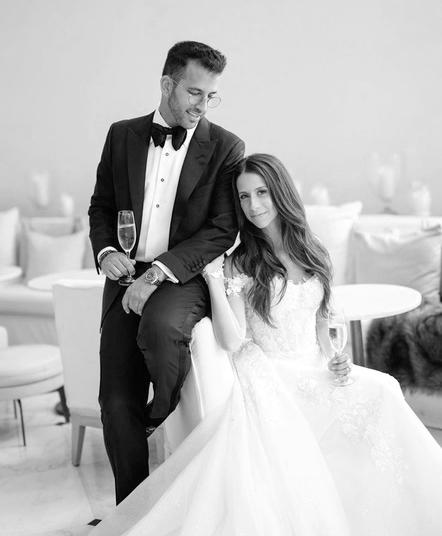
WEDDING – Susan and Michael Rodrigues of Cranston and Fort Lauderdale, Florida, are pleased to announce the marriage of their son Eli Ross Rodrigues to Anna Jane Karan on June 3, 2023, at The Edition Hotel in Miami Beach, Florida. Rabbi Ethan Adler officiated.
Anna is the daughter of Irina and Alan Karan of Sunny Isles Beach, Florida.
The groom is a graduate of the Miami School of Law earning a JD,
MBA and LLM in Taxation. He is a member of the Private Wealth Services Group at Holland & Knight LLP.
The bride is a graduate of New York University, earning a bachelor of science degree in Media, Culture & Communications. She heads the Karan Group at One Sotheby’s International Realty.
The couple honeymooned in South Africa and Zambia and reside in Miami, Florida.
KUDOS TO Charles Bakst for his illuminating, insightful article re Fall River’s Temple Beth El (February 2024) in its glorious days of yore. I thoroughly enjoyed reading the aforementioned without even having to refer to Proust’s legendary Madeleine. Succinctly, the warm-hearted tribute touched me personally as I was one of those who was there at that time period.
Bakst has truly developed a keen sense of–and written about–what was very special about Temple Beth El in the 1950s and, for that, we should all be appreciative.
Thanks, Charles!
Mel Yoken, Ph.D. New Bedford, MASS.
2024 Genesis Prize announced (JTA) — Five Israeli groups supporting Israelis held hostage in Gaza and their families will receive the 2024 Genesis Prize, the $1 million award known as the “Jewish Nobel.”
Presented annually since 2013, the award is given by the Genesis Prize Foundation and has historically gone to Jewish celebrities or public figures. More recently, the foundation has given the prize to organizations that together are tackling a crisis in the Jewish community, including in 2022 when it honored groups supporting Jews in Ukraine.
This year, the foundation turned again to a collective: groups working to support Israelis taken hostage when Hamas attacked Israel on Oct. 7.
The Hostages and Missing Families Forum, which quickly became one of the central organizing groups advocating for the release of the hostages, will share this year’s prize with four other groups: JAFI Fund for Victims of Terror; Lev Echad; NATAL-The Israel Trauma and Resiliency Center; and OneFamily-Overcoming Terror Together.
The groups will not be allowed to use the prize money “to fund political activism, lobbying and other activities inside Israel not directly related to humanitarian assistance,” according to the foundation.
Iset foot in Israel for the first time in June 1965. Having just turned 21 and looking forward to my senior year at Columbia come September, I was to spend most of my summer volunteering at K’far Menachem, a Mapam (seriously socialist) kibbutz located roughly in the center of the triangle formed by Tel Aviv, Be'er Sheva and Jerusalem.
WHEN I LANDED at what was then a rather shabby Lud (now Ben Gurion) airport, a couple of members of K’far Menachem were waiting to put me, my backpack, my banjo and my guitar in the open back of a truck and whisk me off to the kibbutz.
Before I climbed onto the truck, one of the kibbutzniks told me, in slow, comprehensible Hebrew, “Im atah rotseh l’hiyot Yehudi, atah tsarikh lagur po v’l’daber Ivrit,” or, “If you really want to be a Jew, you must live here and speak Hebrew.”
the headline, for most American Jews, Israel is part of what it means for us to be Jewish, but certainly not all of our Jewish identity.
As many of us have come to understand since the founding of Israel on May 14, 1948, we American Jews have developed a profoundly deepening sense of how our identity differs from the nationalist sensibilities of Jews living in the nation of Israel.
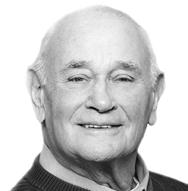
The fact that I was planning to apply to rabbinical school and eventually become a rabbi in the Reform Movement did not seem to impress him. The root, the very essence of Jewish identity, from this young man’s perspective, was land and language –the land of Israel and the language of Hebrew.
It comes as no surprise that the events of Oct. 7 and its aftermath –the barbarous, murderous Hamas attack on Jewish settlements in southern Israel, followed by the Israeli army’s retaliation, killing close to 30,000 Gazans as of press time, most of them women and children – have caused many of us American Jews to reconsider our relationship with our fellow Jews in Israel.
Many writers for magazines and newspapers have published probing articles in the wake of these tragic events, such as the one in the Jan. 15 issue of The New York Times headlined “Is Israel Part of What It Means to Be Jewish? Now, the Answer Varies.”
To answer the question posed in
CONTINUED FROM PAGE 10
Rhode Island School of Design, bought that store’s inventory and opened her own shop on South Angell Street, east of Wayland Square. Myopic Books specialized in rare and second-hand books, especially in art and architecture. In 2017, the store was renamed Paper Nautilus and moved a few doors farther east. I should probably pay an hourly rate merely to visit, because of its profound therapeutic effects!
RABBI JAMES ROSENBERGThe author of the Times article, Marc Tracy, focuses on the thinking of Rabbi Shaul Magid, a professor of Jewish Studies at Dartmouth, whose recently published book, “The Necessity of Exile,” argues that “Jews today outside Israel – 75 percent of whom live in the United States (6,000,000 or so) – should embrace diaspora, the state of lives outside of homeland, as a permanent and valuable condition.”
While more Jews today live in Israel – approximately 7 million – than in any single diaspora community, somewhat more Jews live in the combined diaspora communities than in Israel. That is reason enough for us Jews who do not live in Israel to develop a Jewish identity that acknowledges the complexity of who we are, from whence we have come, and to where we are headed.
Here in America we must build a Jewish existence that embraces the opportunities and challenges of our particular diaspora community, while continuing to nourish and to be nourished by our fellow Jews in Israel.
Another bookstore, Accident or Design?, also specializing in the visual arts, once operated on the southwest corner of North Main and Meeting streets. I’m afraid that the proprietor was not well suited to running a retail business because she could barely tolerate customers. She once told me, “If you touch that book, you just bought it.” I think that she lasted no more than three years.
How ironic that Betsey and I were customers at Linda Fain’s nearby
To quote my favorite philosopher, Yogi Berra, reading the recent Times article on the meaning of diaspora was like experiencing “déjà vu all over again.”
Ever since my first visit to Israel back in the summer of 1965, I have known both viscerally and intellectually that my identity as a Jew is conditioned by the fact that I live in the American diaspora. Like my fellow Jews here in the United States, I am a creature of the diaspora.
It is no accident that those basic Hebrew words spoken to me by a kibbutznik from K’far Menachem have stuck with me for almost 60 years, for it was at that moment that I came to grasp the fact that the Jewish identity of an American cannot possibly be that of an Israeli Jew.
To state the obvious, we American Jews do not live in Israel and do not speak Hebrew as our daily language of discourse. We are citizens of the United States, we call our land America, and we speak English as we go about our lives. Because we live in the diaspora – that is, outside of Israel – our Jewish identity is ethnic and/or religious, but not national.
And yet … and yet …. During each of my subsequent visits to Israel, I have experienced a deepening feeling of identity with both the land in all its physicality and with the language of Hebrew. In a certain sense, I was beginning to feel that Israel is a place in which I could truly belong.
Does my love for America and my evolving love for Israel mean that I contradict myself? To quote Walt Whitman (1819-1892), one of America’s greatest poets, “Do I contradict myself?/Very well, then … I contradict myself.”
And so it is that in the end, when I am being lowered into my grave, the Jerusalem stone that I stuffed into my backpack on the Erev Shabbat prior to Yitzhak Rabin’s assassination, shall accompany me in my casket.
JAMES B. ROSENBERG is a rabbi emeritus at Temple Habonim, in Barrington. Contact him at rabbiemeritus@templehabonim.org.
carpet store for about 16 years, until it closed in 2008. Fain insisted that we fondle every item!
Fain also gave us a beautiful book to learn more about Turkish carpets. What a perfect reminder that Jewish history – near and far – is woven through words, stories and books!
GEORGE M. GOODWIN, of Providence, is the editor of Rhode Island Jewish Historical Notes.
Jewish
of 500 – 800 words) and letters to the editor (300 words, maximum) on issues of interest to our Jewish community. At our discretion, we may edit pieces for publication or refuse publication. Letters and columns, whether from our regular contributors or from guest columnists, represent the views of the authors; they do not represent the views of Jewish Rhode Island or the Alliance.
On our last night in Israel, the participants in the Jewish Alliance of Greater Rhode Island’s Israel Solidarity Mission were in Hostages Square, speaking to the friends and family members of the hostages still being held in Gaza by Hamas. Then, Elihay Skital, the Israeli emissary to our community, gave us an assignment.
PREVIOUSLY, we had spent days doing the kind of volunteer work that many Israelis now do to help those displaced by the Israel-Hamas war. We sorted and boxed donations, and we made a tiny dent in the agricultural work left in under-tended greenhouses. We toured underground hospitals being built in anticipation of war with Hezbollah, and we spent time with at-risk children.
Now, in Tel Aviv, Skital scattered flashcards and asked us to choose two. The
first picture, he explained, should represent something we felt while in-country. The second should represent a hope for the future.
I prayed that I would not be asked to share because I was too exhausted and hungry to process and articulate. But days later, back in my home with my family, I’m still thinking about those pictures.
In the first picture I chose, there is a woman. Her mouth is wide open; she is screaming. I think of how, as a “left-
ist” American Jew, I have felt like I have been screaming since Oct. 7.
I’ve been screaming to defend Israel’s right to exist and defend itself, as well as to remind the world that Israeli women were raped and butchered, and entire families were bound together and burned alive. And, all the while, I’ve been fielding posts and comments from well-intentioned but misinformed friends who have no connection to these people or events.
For us, this is our family. We didn’t just learn that there is unrest in the region; we’ve been living in its shadow our entire lives.
I’ve been screaming in public and in private to assert that these things did happen – even when people use words like “alleged” or “proven false” in reference to these atrocities. I’ve been screaming to defend written history and established facts and to call out antisemitic tropes and blood libel. And a million
other things.
I feel like I have been screaming so much my throat is raw.
We have not been able to process the pogrom on Oct. 7. We haven’t been able to mourn the deaths, or pray, or heal. There hasn’t been space because many of us have been on the defensive since the second we woke up to the news – even before we were able to confirm the safety of our Israeli friends and family.
Our Western ideological allies do not understand the moment we have been stuck in since that day. Some have even demanded that we recognize the Hamas terrorists as “freedom fighters,” branding us racist and/or Islamophobic for referring to them as a “genocidal death cult.”
Looking at this picture, I realized that, when I was in Israel, I could sit with myself and the community. I could feel our loss. I could shut my mouth, listen and just “be” for the first time in months.
What I heard from Israelis still fills me with pride. I felt an uncontainable love for and oneness with the Jewish people. The fist in my stomach was gone. There was a cloud of grief overhead – the hostages are still in Gaza, and time is running out for them – but hope lined this cloud.
I don’t know what’s going to happen in the months ahead, but I know we are going to survive –not just this war with Hamas, but we will survive the global rise in antisemitism and the tsunami of misinformation and disinformation responsible for this swell.
Seeing hospitals being built underground reminded me that people are thinking beyond this moment. Yes, something major is coming. The enemies are at the gate –Hamas, Hezbollah and other Iranian terror proxies – but we will outlive them.
CONTINUED ON PAGE 14
IF YOU WOULD like to better understand why young Jews are becoming alienated from Israel, and even from the mainstream Jewish community, watch “Israelism,” a documentary released last spring about the controversial role of Israel in mainstream American Judaism. “Israelism” has local connections – both the directors, Erin Axelman and Sam Eilertsen, who are Jewish, graduated from Brown in 2012.
The film has now had over 100 screenings around the country and has won numerous awards, including Best Documentary at the 2023 Arizona Film Festival and the Audience Choice Award at the San Francisco Jewish Film Festival, in July 2023. It was screened in December at the Columbus Theatre, in Providence, though I watched it online – and you can, too.
The documentary traces the political transformation
of two young American Jews from being staunch supporters of Israel to deep disillusionment when they finally witness for themselves Israel’s mistreatment of Palestinians. Their disillusionment is not simply about Israel’s occupation, however, but about a sense that their own Jewish community betrayed them by serving them up a “Disneyfied” version of Israel that is far from reality.
Simone Zimmerman grew up in a Jewish “bubble,” going to Jewish day school and Jewish summer camp, and participating in Jewish youth groups, before finding herself defending Israel on her college campus.
After she was confronted with arguments from fellow students about “occupation, settlements, apartheid and ethnic cleansing,” words she claimed she had never heard before, she began to question whether her understanding of Israel was complete.
Traveling to Palestine to see for herself, she met
Palestinians and heard their stories. She came away from this experience both disillusioned and heartbroken.
A second story line follows Eitan, a young Conservative Zionist from Atlanta who joined the Israeli military, but eventually became disturbed by the Israel Defense Forces’ degrading and even brutal mistreatment of Palestinians in the West Bank. He eventually came to believe that participation in the IDF is “immoral.”
Israel’s mistreatment of Palestinians left him dispirited about both Israel and the Jewish community at home, which he felt had misled him.
Both these young people are compelling, but Zimmerman is clearly the star. She speaks articulately about being raised to love Israel unconditionally, while remaining ignorant of the Israel-Palestinian reality.
In the film, Zimmerman, who grew up a devoted Zionist, says, “I’m the best the Jewish community has to
offer, and I didn’t know what the occupation was.” She is angry that her Jewish upbringing delivered indoctrination rather than knowledge.
The film, including footage of pro-Israel rallies, reinforces the impression that support for Israel has cultlike features – indoctrination and constant reaffirmations of unconditional support and commitment. Jewish summer camps have become recruitment centers for the Israeli army, complete with mock military maneuvers in the middle of the night.
“Israelism” is painful, but also compassionate. For many viewers, the film will resonate with elements of their own personal experience.
The film was made before the Oct. 7 Hamas attack on Israel, and Israel’s subsequent war in Gaza, events that have only exacerbated the growing polarization over Israel in the Jewish community.
While the film certainly is critical of Israel’s treatment of Palestinians, it is not a film about Israel-Palestinian history. Rather, it is an indictment of the American Jewish community’s failure to teach Jewish young people about the actual Israel, rather than the myth of Israel.
At the end of an interview with Gary Rosenblatt, the former longtime editor of the Jewish Week, in December 2023, director Erin Axelman said: “We can agree that the American Jewish community is not doing its job of educating young people on Israel and Palestine.”
The issue is not just about teaching Palestinian perspectives (which are diverse), but also teaching diverse Jewish perspectives.
As this important film urgently suggests, the larger issue is the future role of Israel in American Judaism.
NINA TANNENWALD teaches international relations at Brown University.
THE GRASSROOTS members of RI Coalition for Israel, Jews and Christian Zionists, have observed with increasing discomfort the creep of radical anti-Israel extremist rhetoric into Rhode Islands’s city and town institutions over the past several months. The thinking behind such extremism, cloaked though it is in the language of human rights, is a danger to true liberalism in America.
The latest such example we’re aware of is passage of a “ceasefire” resolution by the Providence City Council, and calls for similar resolutions elsewhere in the state, which in effect would give a pass to the war crimes that were unleashed against innocent Israeli civilians on Oct. 7, and which would endanger the long-term security of the only reliable US ally in the Middle East. (Curiously, it would actually subject the human shields, i.e. civilians in Gaza, to even more exploitation and brutality from Hamas.)
Our organization questions whether our City and Town Councils are the proper venue to discuss US foreign policy, and if so, wouldn’t it be discriminatory for them to entertain a resolution regarding the Hamas War on Israel while not also setting aside urgent town business for other equally pressing international human rights issues including the Chinese oppression of Uyghurs, the ongoing genocide of Nigerian Christians, Iran’s oppression of its minorities, the Ukraine-Russian war and others.
Otherwise, one might suspect a hint of antisemitism could underly such a singular obsession with Israel.
Any serious civic or governmental organization in order to be effective has to recognize and sparingly use its finite resources. Our city and town councils are no exception.
Council members should run, not walk, from the currently fashionable temptation to do otherwise, because it is a slippery slope without an end.
Howard Brown
North Kingstown, RI
The writer is executive director of the RI Coalition for Israel
Sanders might be a leftwinger, but often he is right. However, about Gaza he is very wrong – as are most of my liberal friends. They blame Israel for genocide. Not true.
Israel’s army has given civilians numerous chances to escape, has dropped leaflets and made telephone calls in Arabic to warn people, and has provided safe corridors. That is why millions left northern Gaza and are now in Rafah. After Rafah, there are other safe places to go.
Hamas claims that 29,000 people have been killed in Gaza. But an estimated 11,000 are fighters, not civilians. The remaining 18,000 deaths are less than in other battles in urban areas:
in Aleppo, Syria, 23,000 civilians died, 2012–2016; in Mosul, Iraq, 25,000 died, 2016-2017. None of these battles was labeled genocide. None saw large protests.
Right now, Syria and Russia are killing civilians in northwest Syria. No one is protesting. China has been wiping out Muslim Uyghur culture. No one is protesting on college campuses.
In 1945, the United States and allies bombed cities in Germany and Japan, killing over 100,000 civilians in Tokyo alone. No one called it genocide – no one protested. Everyone thought the killing was justified to
CONTINUED FROM PAGE 13
THE SECOND PHOTO I chose pictured a set of parents and three children, from their knees down, biggest shoes to smallest. This card represented my hope for the future. I saw in it my family in a few years. I hope I can bring my children to Israel after this war, and wouldn’t it be just the most fantastic miracle if this was the last war of its kind? I could tell them that terrible things used to happen here, but thank God, that’s over because we figured it out, and those days are behind
rid the world of fanatical regimes.
So why the protests about Gaza? Does it have anything to do with the billions of dollars Qatar has sent to Gaza and elsewhere? Who is paying for all those fancy Palestinian flags at the protests? Not poor college students. Nor the poor Socialist Party members at the forefront.
A permanent ceasefire right now is hazardous for peace, because 83% of West Bank residents approve of Hamas’ violent massacre on Oct. 7, according to a poll done late last year in Gaza and the West Bank by the group Arab World for Research and Development.
A ceasefire will make these people believe that the Hamas way is the road to victory. That delusion will lead to more killing sprees. Such myths and delusions make it impossible for a Palestinian state to happen.
Consequently, the defeat or surrender of Hamas is necessary for a two-state solution. Both peoples need to accept one another for each to thrive in peace.
So, how can we achieve a real peace in the Levant?
A containment policy worked when a fanatical Soviet Union created violence all over the world. Israel tried policy– it restricted materials for war, but allowed food, water, electricity and cash from Qatar into Gaza. But Hamas supporters complained
us.
I know coexistence is possible. I know that this is not a matter of Jews versus Muslims or Judaism versus Islam. There are a lot of problems, and I don’t have all the answers, nor should I. I’m just one person and one Jew. But there is a way to make this work; the future we see for our children can’t look the same as the last several thousand years.
The Jewish people are alone in their grief over the massacre and the hostages. The rest of the world has moved on – because it can.
about genocide and apartheid! And containment did not work.
In Europe, containment worked meaning it brought down the Iron Curtain in part because East Germans voted with their feet. Sadly, Gazans cannot vote with their feet because Egypt does not want more fanatics. Nor do Jordan, Saudi Arabia, etc.
To achieve peace, Stephen Harper, former prime minister of Canada, offers this perspective, posted on Nationalpost.com on Feb. 18:
“... Our own experiences as Western democracies [after World War II] should provide guidance. Yes, we helped Germany to re-build. But we also insisted it de-construct the ideologies that led to its aggression. And we demanded it fully embrace the ethics of peaceful coexistence. Only then was its sovereignty restored and its membership in the family of free nations affirmed.
“Generations of Palestinians have been inculcated with one-state mantras –‘from the river to the sea,’ ‘the right of return,’ ‘settler occupation,’ and so on. At their heart they categorically reject the right of a Jewish state to exist on any piece of the land of the former Mandate for Palestine. We must stop pretending that a two-state solution can be pursued in the face of the continued propagation of such a view.”
Many Israelis believe that, while the hostages may still be alive, they are lost to us already. We heard from some who felt that since Hamas leader Yahya Sinwar was one of the prisoners released in the exchange for Gilad Shalit, in 2011, they no longer support any negotiations with Hamas. Sinwar was one of the architects of the Oct. 7 massacre.
My world has become smaller since Oct. 7. Even so, I have never loved us, Am Yisrael, the people of Israel, more. We’re living through a moment that, like
Some other ideas to achieve peace:
Let’s start discussions in every town in Israel and Palestine to air grievances and, step by step, get to truth and reconciliation. A key truth to realize: Everyone is a colonist, but Celts are not leaving Ireland and moving back to France and Germany, and Arabs are not leaving the Levant and returning to Arabia.
Let’s talk about reparations, both for those Muslims who really were expelled and for the 800,000 Jews forced to flee their homes in Muslim lands.
If Germany can pay billions in reparations to Jewish victims, then Israel can also pay real victims of 1948, with revenue from the Mediterranean gas fields. And oil-rich countries can reimburse the Mizrahi Jews forced from Muslim lands.
Let’s also realize that in these times when too many fanatics have handheld rocket launchers and too many rogue nations can access nuclear weapons, the world needs to find humane, non-military ways to deal with political lunacy and to remove fanatical regimes.
GARY LEIB , of Tiverton, is a retired town planner, frequent traveler to Israel with Honest Reporting, Shurat HaDin and the Jewish Alliance of Greater RI. He was an Army officer in Vietnam and is a history buff.
so many before, we will one day tell our grandchildren about.
I don’t know much for certain, but I do know that as long as there is human civilization, there will be Jews telling these stories. For now, and for me, this is enough.
E. LYDIA FASCIA WONG lives in Warwick with her husband and their two Chinese-American Jewish babies. She works to improve the quality of life for individuals with autism, and she is active in local theater.
If you are craving a delicious meal or nosh, and you follow a plantforward diet, then Micah Siva has a cookbook for you.
SIVA, A REGISTERED dietitian, trained chef, recipe developer, photographer and food blogger, has taken Jewish favorites and reimagined them with some delicious, meat-free twists.
Think Tumeric Vegetable Matzo Ball Soup, a Celeriac “Pastrami” Sandwich and Savory Pulled Mushroom and Tofu “Brisket.” The photos alone will have your mouth watering.
Siva, who lives in northern California with her husband and baby, will be in Providence on March 24 as part of her book tour for “Nosh: Plant Forward Recipes Celebrating Modern
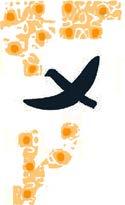
Jewish Cuisine” (The Collective Book Studio), which is available March 5.
In a recent phone interview, Siva said the book is something she’s been wanting to create for 20 years. She said she’s been a vegetarian since she was 12 or 13. Growing up in Calgary, Canada, she had a classic Jewish bubbe who taught her to cook.
Siva said her cookbook is suitable for anyone who wants good food.
“This is a book for the whole family. You don’t have to be vegetarian,” she said. “I just care that you have something that you love to eat. [And] I think it’s important to show that Jewish food isn’t just pastrami sandwiches and bagels.”
Siva is an Ashkenazi Jew and her husband is Sephardi. Together, she said, they are pescatarians, who eat fish once or twice a month.
Connection to food and family was a driver in putting together the book. And so was bringing Jewish joy to the food space.
After living in Canada and London, Siva and her husband moved to California in March 2020. She

worked as a recipe developer and food photographer, and had a food blog on the side. But the work dried up




during the pandemic, and she spent more time on the blog, where she enjoyed developing recipes that reminded her of home.
She’s worked on the cookbook little by little. She said there should be a little something for everyone, and noted that all the recipes are dairy-free.
The 256-page book includes more than 80 recipes divided into Breakfast & Brunch; Soups; Salads; Spreads & Sides; Mains; Baking & Desserts; Cocktails & Beverages. There’s a glossary of Jewish foods and a guide to plant-based substitutions for dairy items and eggs as well as sample menus and recipes for pantry staples.
“I hope everyone likes it,” Siva said of the cookbook. “It’s my firstborn.”
“I hope I can reach Jewish people. We are still here, and we can keep going! Food brings us together.”
On March 24 at 2 p.m.,
Micah Siva will sign copies of her new book at Maven’s deli, 727 East Ave., Pawtucket. Tickets are $35 and include a signed copy of the book, a special treat for Purim and a $5 gift certificate to Maven’s. Preregistration is required.
This event is brought to you by Reading with Robin’s Robin Kall. Books are provided by the Curiosity Store, in Jamestown. To register, go to https://www. curiosityand.company/ store/p/micahsivamavens.
See page 16 for two recipes from the book.
FRAN OSTENDORF (fostendorf@ jewishallianceri.org) is the editor of Jewish Rhode Island.

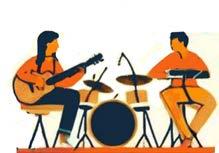






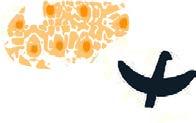
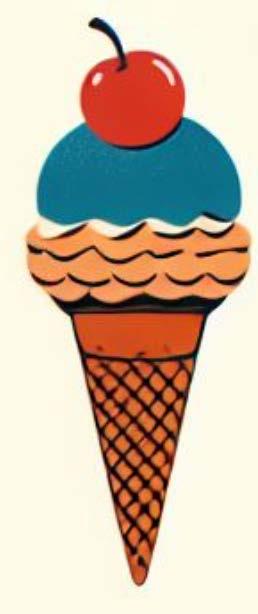






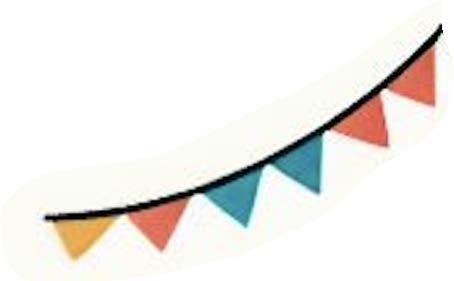












Makes: 30 to 36
On the table in… 3 hours, including 1 hour of resting time
Although hamantaschen have always been one of my favorite Jewish treats, they are long overdue for a rebrand from their reputation as a dry, flavorless cookie at the back of the deli case. Every spring, my family would fill, fold, and bake dozens of hamantaschen, filled with poppy seed or prune filling in preparation for Purim. The recipe here is not the prune-filled hamantaschen of my childhood. Inspired by my own springtime birthday, I updated and veganized my favorite holiday cookie with a dash of almond extract, colorful sprinkles, and a simple cashew “cheesecake” filling for a birthday-worthy hamantaschen that can be made all year-round.
¾ cup unsalted vegan butter, at room temperature
½ cup sugar
¼ cup applesauce
1 teaspoon vanilla extract
1 teaspoon almond extract
2¼ cups all-purpose flour, plus more as needed
1 tablespoon cornstarch
1 teaspoon baking powder
¼ teaspoon sea salt
¼ cup rainbow sprinkles
FILLING
1½ cups raw cashews, soaked in hot water for 20 minutes
2 tablespoons cornstarch
2 tablespoons coconut oil, melted
⅓ cup water
¼ cup sugar
1 teaspoon vanilla extract
1 tablespoon lemon juice
1 teaspoon lemon zest
½ teaspoon almond extract
½ teaspoon salt
GLAZE
¼ cup plain unsweetened non-dairy milk
2 tablespoons maple syrup
MAKE THE DOUGH
Food processor: In the bowl of a food processor, combine the vegan butter, sugar, applesauce, vanilla, almond extract, flour, cornstarch, baking powder, and salt, pulsing until just combined. Add the sprinkles, pulsing two or three times to incorporate. The dough should be moist but not sticky.
Stand mixer: Using the paddle attachment, mix the vegan butter, sugar, applesauce, vanilla, and almond extract until light in color. Add the flour, cornstarch, baking powder, and salt and mix on low until just incorporated. Add the sprinkles and mix on low for 1 minute more to evenly distribute.
Serves: 4 to 6
On the table in… 20 minutes
INGREDIENTS
½ yellow onion, finely chopped
1 medium tomato, cut into ¼-inch pieces
½ English cucumber, seeded and cut into ¼-inch pieces
Salt Pepper
2 cups roughly chopped fresh parsley
½ cup roughly chopped fresh mint leaves
½ cup pomegranate arils
½ cup cooked brown or green lentils
1 teaspoon lemon zest
Juice of 1 lemon (about 3 table -
Flatten the dough into a disk and wrap in plastic wrap. Refrigerate for at least 45 minutes.
Drain the cashews. In a high-speed blender or food processor, combine the cashews, cornstarch, melted coconut oil, water, sugar, vanilla, lemon juice, lemon zest, almond extract, and salt and blend until smooth. Note: The mixture will be thick, so you may have to scrape down the sides occasionally to blend. Set aside.
Line 2 sheet pans with parchment paper.
Remove the dough from the fridge and cut it in half. Rewrap one half of the dough with plastic wrap and keep in the fridge. Roll one half of the dough on a wellfloured surface to ⅛ inch thickness.
Using a 3-inch circular cookie cutter (or a glass), cut out circles of dough and transfer them to the prepared sheet pans. Reroll the scraps until all the dough is used. If you find the dough is sticking to the cutter, dip it in flour before cutting. Place 1 teaspoon of the filling in the center of each circle. Pinch the dough into a triangle or fold the left edge of the dough toward the center, covering a small portion of the filling, then fold the right edge of the dough toward the center, slightly overlapping the left, creating a triangle shape, with the point closest to you. Fold over the top of the dough and pinch the edges together, or tuck it over like an envelope. Pinch each corner to secure.
In a small bowl, combine the non-dairy milk and maple syrup. Use a brush to brush the glaze over all the hamantaschen. Transfer the pans to the refrigerator and chill for at least 15 minutes. This will prevent them from opening and losing their shape when baking.
advance and store in airtight containers separately in the refrigerator. Leftover filling is great on top of oatmeal, added to smoothies, or on toast.
spoons)
3 tablespoons olive oil
¼ cup sesame seeds
2 teaspoons za’atar
DIRECTIONS
In a medium bowl, combine the chopped onion, tomato, and cucumber. Season liberally with salt and pepper. Let sit for 5 to 10 minutes. This helps remove excess water from the vegetables. While the vegetables are salting, combine the parsley, mint, pomegranate arils, and cooked lentils in a serving bowl. Use a colander to drain the onion and tomato mixture, pressing out any excess liquid. Add the mixture to the serving bowl. Add the lemon zest, lemon juice,

Meanwhile, preheat the oven to 350°F. Transfer the sheet pans to the oven and bake for 12 to 14 minutes, or until just golden. Note: If you roll the hamantaschen out too thick, it will take longer to bake. Check the hamantaschen for doneness around 12 minutes. NOTE: Freeze the hamantaschen in airtight containers for up to 6 months. Prepare the dough and filling up to 4 days in
olive oil, sesame seeds, and za’atar and toss to combine. Season with salt and pepper to taste.
NOTE: Make this salad up to 3 days in advance by combining everything but the fresh herbs in an airtight container and refrigerating. Toss with the herbs just before serving.
VARIATIONS: Add 2 teaspoons of ground sumac to this recipe for a tangier variation. Omit the sesame seeds and add hemp seeds for added protein.
Recipe from “Nosh: Plant Forward Recipes Celebrating Modern Jewish Cuisine,” by Micah Siva. Reprinted with permission.
VARIATION: To use this hamantaschen dough as a base for other fillings, omit the almond extract and sprinkles. Use a thick filling that won’t seep liquid when cooking, such as high-sugar jams (I use Bonne Maman brand), chocolate hazelnut spread, apple butter, or a poppy seed filling. Hamantaschen are a blank canvas for fillings!
Recipe from “Nosh: Plant Forward Recipes Celebrating Modern Jewish Cuisine,” by Micah Siva. Reprinted with permission.

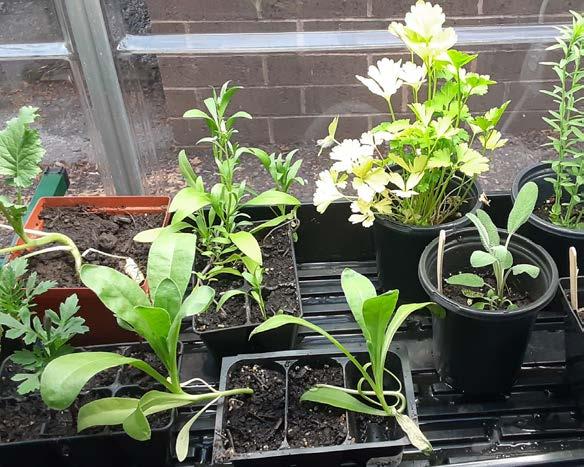 BY KENDRA DOE-MODE
BY KENDRA DOE-MODE
When spring arrives, the urge to get outside and enjoy the warmer temperatures is natural. Maybe it even inspires thoughts of a new project, such as planting tiny seeds in hopes of a bountiful harvest.
BUT EVEN if you’re an old hand at gardening, sometimes spring can bring a little confusion. What should I grow? How many seeds do I need? When do I begin?
What is the best soil?
These questions are normal to ask. Like any hobby or practice, you can become a little rusty after some time off. So read on for answers to your most pressing garden issues!
A good place to start is by

assessing your space. Many garden plants prefer six to eight hours of sunlight, plenty of water and rich soil. Take a moment to consider how much sunlight your garden plot receives, whether it’s direct or indirect sunlight, and the condition of your soil.
If you’re planting in the ground, late winter to early spring is a perfect time to get those soil samples to a
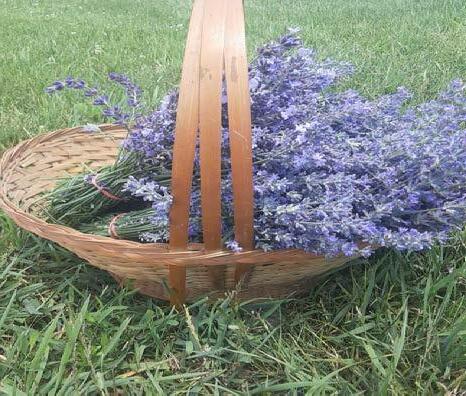
and thrive in a variety of environments. Vegetables often require more nutrients, water and sunlight to grow the fruiting body of the plant. (Insects enjoy vegetables as much as we do, so pest prevention is usually called for too.)
lab. The information you’ll receive about your soil, and the need for amendments, can make all the difference in the health of your plants.
Container gardening calls for similar considerations, including obtaining healthy soil.
When purchasing bagged soil for any type of gardening, you get what you pay for, so remember to check the ingredients. I look for products that state that they are OMRI (Organic Materials Review Institute) certified, include composted cow or poultry manure, kelp meal, ideally, and ingredients that provide moisture retention and aeration for soil roots, such as coconut coir, perlite and vermiculite. Worm castings are another great addition as they offer a perfect balance of nutrients.
When you open a bag of soil, you’re looking for a dark color and crumbly texture that easily clumps together when squeezed. There should not be a lot of large pieces in it as that would show it wasn’t fully processed. But there should be enough slightly larger chunks to allow oxygen to flow to the smaller particles.
Consider your planting site when choosing what to grow. In general, herbs grow
Flowers require decent soil and water, as they need a lot of energy to produce blooms. On the plus side, they are not only beautiful, but they attract pollinators that can help control pest populations in your garden.
One of the biggest mistakes in gardening, especially for warm weather crops, is planting too early, while the soil is too chilly. Buying seedlings from reputable nurseries or farmers removes some guesswork, as seedlings aren’t usually ready until late spring, when the soil has warmed a bit.
Most seed packets have instructions for optimal growth, including soil-temperature requirements and sunlight needs. A good rule of thumb: cool-season crops (e.g., broccoli, lettuces, kale) do well in soil temperatures around 50 degrees; warm-season crops (e.g., squash, basil, cucumbers) require 60 degrees; tomatoes do best closer to 70 degrees.
Starting your seeds indoors gives you an advantage on the season, but requires good sunlight, warmth and proper airflow for success. Some plants can be directly planted in the ground, such as carrots, radishes, arugula and peas, all of which prefer soil temperatures of 50 to 60 degrees.
If you’re buying seedlings,
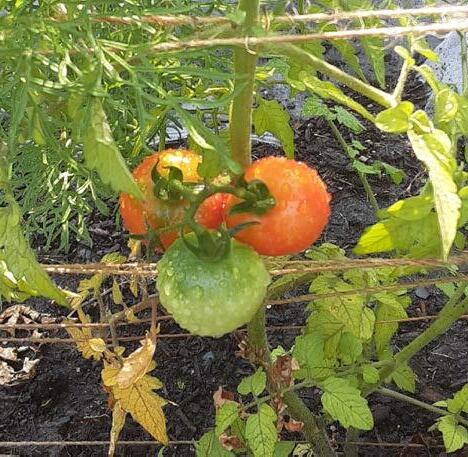
make sure to look for plants that have the best chance of thriving in your garden plot. They should have green and healthy foliage, with strong stalks. Signs of new buds or leaves are also great indicators of the plant’s health.
If the seedling is really young, make sure there is a minimum of two sets of “true leaves” and the seedling is roughly 4-6” in height. These are all signs that the plant is ready to flourish once in the ground or container. Here’s a list of plants that are easy to grow:
HERBS: Oregano, thyme, marjoram, basil, dill, chives, sage, lemon balm, mint and rosemary are all wonderful and easy to maintain, and do well in pots or in the ground.
VEGETABLES: Pole and bush green beans, sugar snap peas, snow peas. Pole beans and most peas require trellising, which should be indicated on the seed packet or by the seedling supplier. Kale, lettuces, radishes and Swiss chard are also easy
to grow. Onions qualify, but keep in mind that different varieties are either “long day” or “short day,” based on how much sun they need to grow the bulb. “Long day” onions do very well in the Northeast.
FLOWERS: Sunflowers, sweet alyssum, sweet peas, marigolds, begonias, zinnias, snapdragons and Shasta daisies are all great plants for beginners. Sweet peas do well with trellising, and create a fragrant and beautiful wall of color. Begonias do well in shaded areas and in containers. Snapdragons need plenty of water to continue blooming all summer long.
KENDRA DOE-MODE is a farmer, garden youth educator and graduate of the University of Rhode Island Master Gardener Program. She works in the membership department of the Jewish Alliance of Greater RI. She loves chatting about plants and welcomes inquiries at kdoe@jewishallianceri.org.
On May 5, from 10 a.m. to 1 p.m., there will be tons of healthy annual, perennial and native plants on sale at the Alliance’s Dwares Jewish Community Center. Browse through a variety of locally grown seedlings, chat with the farmers and growers, listen to live music and more. It all takes place at the JCC, 401 Elmgrove Ave., Providence.
Check out Kendra Doe-Mode’s article from last year if you’re looking for more information on gardening basics. Go to http://tinyurl.com/28bpbfkk.
 BY JEWISH RHODE ISLAND STAFF
BY JEWISH RHODE ISLAND STAFF
Bob Abelman, an award-winning former theater critic for the Austin Chronicle and Cleveland Jewish News, is now writing reviews of the Providence Performing Arts Center’s Broadway and Encore series productions for Jewish Rhode Island.
ABELMAN’S SINGULAR voice and engaging writing style will become increasingly familiar with each posted review. But he says the best way to get to know him is through “All the World’s a Stage Fright: Misadventures of a Clandestine Critic,” his funny, fictionalized memoir that was written and published during the pandemic.
Jewish Rhode Island met up with Abelman, who recently moved to Rhode Island from Austin, Texas,
to discuss his life as a theater critic and what inspired the novella.
It seems as if you were busy writing about theater during the pandemic, even though all the venues were shuttered.
I was in survival mode, missing theater, along with every actor, crew, designer and audience member. Years ago, when I became the theater critic for the Cleveland Jewish News, I auditioned
for a local professional production of Isaac Bashevis Singer’s “Yentl” so I could write about the experience for the paper – sort of how journalist George Plimpton played quarterback for the Detroit Lions during a preseason scrimmage so he could write about the disaster for Sports Illustrated. As a much younger man, I had been a professional actor who appeared on Broadway, and so far off-Broadway it was Connecticut. I got cast in the show, and wrote the article, and during the pandemic, thought to turn the “Yentl” experience into a memoir.
As backup, I also auditioned at another theater and got cast in a small role in Shakespeare’s “As You Like It.” I chose to perform in “Yentl” because I thought the story would be of greater
interest to the readers of a Jewish publication. At least, that’s what I told myself. In truth, I found the idea of acting in a revered 400-year-old play with classically trained actors at a world-class venue in a role originally played by Shakespeare himself more than a bit intimidating. When I started writing the memoir, I began wondering what it would have been like if I had actually chosen “As You Like It.” So, I wrote about that instead [of “Yentl”].
Also, I had read that when the bubonic plague hit London in 1603 – when the Globe Theatre and other playhouses were shut down – Shakespeare continued to put quill to parchment and wrote “Measure for Measure” while in quarantine. When the plague returned in the summer of 1606,
Shakespeare was putting the finishing touches on “King Lear,” “Macbeth” and “Antony and Cleopatra.”
Writing about “As You Like It” during the pandemic –using that plot to drive my own and usurping the most famous line from the play as my title – felt right.
So you went from writing an autobiography to an autofiction?
Autofiction is a bona fide literary category, according to The New York Times Book Review, where details of the author’s life blend with fictional information, characters and events. It reads like a published first-person account of the writer’s real life, but it embellishes that life with immense poetic license. I went from
Michael Smith, and his son Adam, and his granddaughter Ariana, have taken to heart the Jewish tradition of charitable giving.
JEWISH Collaborative Services recently honored the Smith family with the Ruth and W. Irving Wolf Jr. Award for Multigenerational Philanthropy, at a ceremony at Tamarisk Senior Living.
Accepting the honor from Scott Wolf, son of Ruth and Irving, were Michael and his wife, Marilyn Smith; Adam Smith and his wife, Dr. Andrea Allgood; and their daughter, Ariana, who is 7.
Ariana’s commitment to assisting the Full Plate Kosher Food Pantry at JCS,
CONTINUED FROM PAGE 18
doing a Plimpton to doing a George Santos.
Where in “All the World’s a Stage Fright” does the autobiography end and the fiction begin?
My avatar Asher Kaufman is taller, better looking and significantly less functional than me. And rather than being intimidated by being in “As You Like It,” he has an irrational, overriding, mind-numbing fear of iambic pentameter. Shakespeare’s plays have been called the Mount Everest of English-language literature. The air certainly gets thin for Asher when he’s in rehearsal for this play, as if the stage was five and a half miles high and ice-capped. But Asher’s backstage experiences and relationships were mine during “Yentl,” and all the characters are informed by real people, albeit wildly exaggerated.
on North Main Street in Providence, served as the catalyst for the award to the Smith family. Ariana, a student at the Jewish Community Day School, learned about the mission of helping Jewish families in need, and asked her father to join her in donating food items to the pantry.
“Her family has obviously taught Ariana well,” said Sara Ades Goodwin, chief development officer at JCS. “Ariana is such a delight. She brings bags of food to the pantry herself and even helps to stock the shelves!”
The award was also given to the Smith family for their long history of philanthropy. Michael and Marilyn have assisted JCS in its elder-care outreach program by making visits and providing cheer at nursing homes and assisted living facilities. Michael also served on the building committee for Tamarisk Senior Living Residence, in Warwick, which is operated by JCS.
And it’s certainly my voice coming out of his mouth.
Was the book difficult to write?
It was great fun conjuring up this book, which made the writing easy and quick.
I always write quickly – a tendency born from having worked on tight deadlines my entire career as a critic. The novella was published just eight months after I started writing it, due in large part to its snack-sized length and my newspaper serving as a publishing and promotional partner. We found an audience even though signings at bookstores and appearances at book fests were limited due to COVID.
With the continued cancellation of theatrical productions due to the coronavirus variants, I wrote a sequel called “Murder, Center Stage” – an Agatha Christie-like whodunit involving the same cast of actors, and a fully invested Asher, who have moved on to a produc -
JCS also thanked Michael and Adam for their charitable work as the owners of Shalom Memorial Chapel, in Cranston. Michael provided comfort to families of the victims following the mass shooting at the Tree of Life Congregation, in Pittsburgh, in 2018, and assisted with arrangements for some of the 100 victims of the Station Nightclub fire, in West Warwick, two decades ago.
In September 2023, Michael was honored as Man of the Year by the Touro Fraternal Association, where he has been a board member for 35 years, and Adam is also a member.
The glass artwork award presented to the Smith family was designed by Neal Drobnis, the coordinator of JCS’s kosher nutrition program and a glass artist by trade.
LARRY BERMAN is the communications chairman of Touro Fraternal Association.
tion of Stephen Sondheim’s musical “Sweeney Todd.” They find themselves in the middle of an unscripted, onstage, opening-night murder. As an observant outsider, Asher is asked by police to help find out which of his quirky castmates is the killer. They all claim innocence, but they could just be acting.
Thank goodness theaters have reopened and I’m back to reviewing. If they didn’t, these two books would have been turned into a trilogy. Was writing these novellas different from writing theater reviews?
With reviews, I don’t have to invent a production of a play or its actors since I’m attending an actual performance being staged by an actual theater troupe. But, like the books, I use my stage experience in my reviews to describe and explain the creative choices being made by the actors, designers and directors, and to critique the
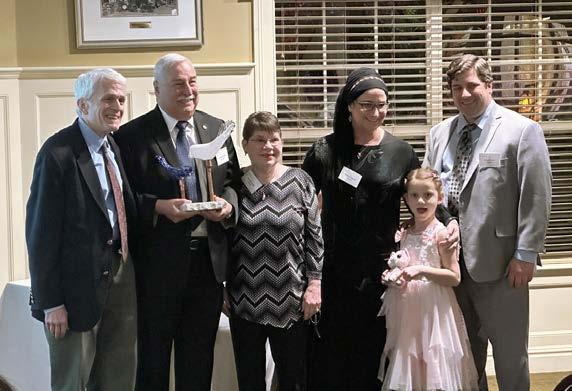

execution of them. And I try to make everything I write a good read – engaging and entertaining.
You’re new in town. Tell us more about your background.
My wife, Judy, and I live in Tiverton. My son, his wife and our granddaughter live in Barrington, and our daughter lives in Chicago. I was born when Tennessee Williams’ “Cat on a Hot Tin Roof” first opened on Broadway.
When I was a kid, my Yiddish-speaking grandmother used to call me a “klug tokhes.” I earned my actors’ equity card when I was 8, studied journalism in college, and developed my writing and thinking skills while earning a Ph.D. from the University of Texas-Austin. This is the perfect storm for the making of a theater critic.
What’s your take on the Providence-area theater scene?
It’s very much a small but well-balanced artistic ecosystem. There’s a variety of professional venues offering something for everyone [and] stabilized by reputable, long-established companies like Providence’s Trinity Rep and Warwick’s Gamm Theatre. I look forward to exploring them all.
There is no centralized, downtown cluster of theaters – like Cleveland’s Playhouse Square, Chicago’s Loop and Boston’s Theater District –which can be a disadvantage to finding audiences. But the Providence Performing Arts Center has been serving as a hub to bring local and surrounding state theatergoers downtown for more than 45 years. I hope my reviews in Jewish Rhode Island will help readers determine whether it is worth the trip.
Learn more about Abelman’s novellas at https://www. grayco.com/product/all-theworlds-a-stage-fright/.
“South Providence Girls: A Clique in Time,” by
Marian Leah Knappand The Junior Debs (Loagy Bay Press, 2023), takes readers back in time to 1938, when a group of Jewish girls were born in a gritty neighborhood in what is now known as the South Side of Providence. The biographical book tells the story of the girls and is interspersed throughout with quotes from the individual women.
SEVEN YEARS old when World War II ended, their generation is often overlooked.
“Our cohort had some labels, which very few remember or use today: the Silent Generation and the Lucky Few Generation. Silent because we simply followed rules and expectations and grew up quietly in
a time of tranquility after the war, with limited worries. Lucky because, as one of the smallest demographic units of the 20th century, we had less competition for jobs and more opportunities for learning and economic advancement,” Knapp wrote.
The girls grew up in a Jewish community in South
Providence that was surrounded by a larger, mostly Catholic community. The world these girls lived in was shockingly antisemitic by today’s standards, thought the author and the women interviewed largely brush it off as not having impacted them.
“Another problem was that no Jewish kid could ever have the prized status of ‘perfect attendance’ because we were out of school on Jewish holidays: Rosh Hashanah, Yom Kippur, the first one or two days of Passover, and depending on how religious a family was, a few other holy days,” the book states.
I really enjoyed the recollections of the group and individual members – they helped paint a larger picture of how the world was for these young women.
Having experienced rationing as elementary schoolchildren, Naomi is quoted as remembering, “My dad somehow got bubble gum – I’m sure it was black market. I remember chewing it and putting it in the refrigerator in water so it would keep for the next day.”
The girls came together in junior high school to form a larger group that would become The Junior Debs.
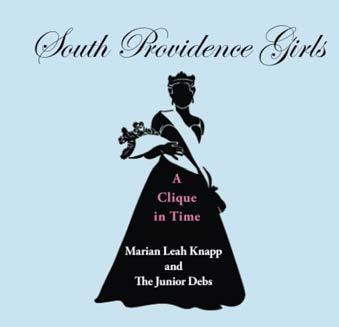
distinctly visible to the rest of the community.
“In addition to the early bonding opportunities, there were overarching forces that pulled us together. Being Jewish was the big one. That religious and ethnic status made us fundamentally different from everyone else, and made us
“We were aware of this outsider status, but it didn’t have much of a lasting impact on us. It was more background noise than anything else and did not substantially interfere with having non-Jewish friends.”
The state of Israel was cre -
CONTINUED ON PAGE 20


The Jewish Educators Assembly (JEA), an arm of the United Synagogue for Conservative Judaism (USCJ), is excited to announce that Dr.
Lawrence Katz will be honored with the Lifetime Achievement Award on Sunday, March 10, 2024 in Atlanta, GA. Katz has been an active member of the JEA since 1978 and has earned an honorary Doctor of Pedagogy from the Jewish Theological Seminary. Katz continues to serve on the JEA board, offering his advice and wisdom, gained from a lifetime of serving the Jewish people.
LAWRENCE (Larry) Katz
recently retired from the position of director of Jewish life and learning for the Jewish Alliance of Greater Rhode Island. He served 26 years with the Alliance and one of its predecessor agencies, the Bureau of
Jewish Education. Among his duties, he provided professional development opportunities and educational resources for Jewish educators and directed the Israel Desk, including supervision of the shaliach/Israeli emissary. He also adminis -
tered a foundation to provide scholarships for day school students.
Previously, Katz served Jewish schools and central agencies for Jewish education in Hamilton, Ontario; Dallas; Cincinnati; Vineland, NJ; Reading, PA;
and Cleveland. He earned a BA at Columbia College and an MA and a Doctor of Pedagogy, honoris causa, from the Jewish Theological Seminary.
Katz is a past president of the Jewish Educators Assembly, and he served for several years each on the boards of United Synagogue for Conservative Judaism and the Rhode Island affiliate of ASCD, a professional educators’ organization, as well as a Jewish federation and JCC. He currently serves on boards within the Jewish community, ranging from supporting Jewish scouting to a historical
society, promoting business and academic ties between Israel and Rhode Island and developing a Jewish Museum. He recently was recognized by the Consulate of Israel to New England for his involvement in programs about Israel.
Katz is a recipient of the Charles Samdperil Award from Jewish Community Day School and the Amudim Award from Providence Hebrew Day School.
Katz lives in Providence with his wife, Marilyn Spitalny Katz. They have two sons, Daniel and Jacob, both of whom live in Virginia.
“You stepped over bodies. You didn’t pay attention. It didn’t mean anything. I never knew anyone’s name. I didn’t want to know.”
THESE CHILLING words were spoken by Holocaust survivor Bill Basch in Steven Spielberg’s 1998 award-winning documentary, “The Last Days,” which will be screened on April 7 at 10 a.m. at the Alliance’s Dwares Jewish Community Center in Providence. The program is sponsored by the Sandra Bornstein Holocaust Education Center and the Rhode Island Jewish Historical Association. Light refreshments will be served.
The film, which won the Oscar for Best Documentary (Feature) in 1999, focuses on the meteoric decimation of the Hungarian Jewish population in 1944, as seen
through the eyes of survivors.
In the final year of the war, the Nazis knew they were running out of time. During the summer months of 1944, the Allies launched their D-Day attack on the beaches of Normandy, and successfully liberated both Italy and France. The prime minister of Hungary, Miklos Kallay, once a close ally of Nazi Germany, then began peace negotiations with the United States and Britain, hoping to distance himself and his country from the Nazi regime.
In retaliation, Germany occupied Hungary, deposed Kallay, and installed a puppet government led by the Fascist political party Arrow Cross. The Fascists quickly began aggressively pursuing the “Final Solution” for Hungarian Jews, then the largest remaining Jewish population in Europe.
The new leadership was popular with much of the Hungarian population, which feared Soviet occupation and enthusiastically
supported the destruction of the country’s Jews.
In March, only one month after the occupation, Jews across Hungary were put into hastily constructed ghettos. On an accelerated timeline, deportations began in May 1944. In less than two months, 440,000 Jews were taken to Auschwitz, where most were murdered. The remaining 70,000 Jews in Budapest were tortured by the Arrow Cross inside the ghetto and subsequently forced on a death march to the Austrian border.
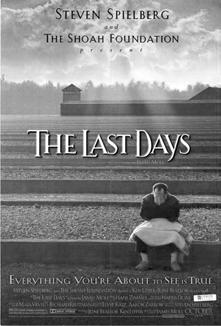
On the eve of the war, there were 825,000 Jews in Hungary. At liberation, only 255,000 remained.
The film highlights the strength of five survivors as they revisit old homes, ghettos and concentration camps, often with their
children and grandchildren. Their perseverance is severely tested during the visits, particularly when returning to their cities of origin, where they find former neighbors living in their homes and synagogues that have been converted into concert halls and wiped of all Jewish history. The survivors move almost like ghosts through places which have worked hard to forget them. This erasure has continued into the modern day. Hungary, like many former Nazi collaborators, has been increasingly unwilling to admit its role in Jewish oppression and the Holocaust. Historians and politicians alike engage in clear revisionism around Hungary’s role in the Holocaust. Since 2010, the country has been led by far-right leader Viktor Orban, who is well-
known for his antisemitic remarks and policies.
Hungary’s relationship to its Jewish community, both to survivors and those murdered during the Holocaust, adds dimension to “The Last Days” and makes the documentary a thought-provoking and compelling watch.
After the screening, Rabbi Michael Cahana, a former associate rabbi and director of education at Temple Beth-El, in Providence, will speak via Zoom. Cahana is the son of Alice Lok Cahana, one of the survivors featured in “The Last Days.” He will lead a discussion and answer audience questions, as well as share more about his mother’s artistic career after her liberation.
For more information and to RSVP, please call 401-4537860 or email info@hercri. org
GIOVANNA WISEMAN is director of programs and community outreach at the Sandra Bornstein Holocaust Education Center, in Providence.
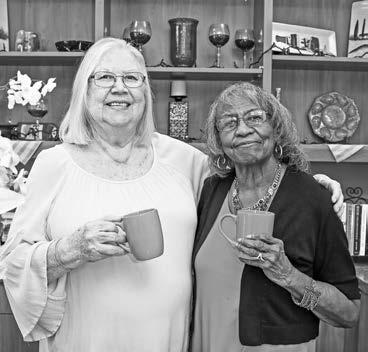
- Comfortable living with assistance
- Private, gracious accommodations
- Convenient location in Providence
- One bedroom and studio apartments
- No additional fees
- No application fee
- Exercise classes
- Organized activities and outings
Assistance at Saint Elizabeth Assisted Living includes:
• Bathing and dressing
• Housekeeping and laundry
• Medication reminders or administration
• Breakfast, lunch, dinner and snacks
Call 401-490-4646 or scan for a virtual tour of our locations throughout Rhode Island.

stelizabethcommunity.org
At the Jewish Alliance, we believe all people should be treated fairly and justly. If you have experienced or witnessed an incident of anti-Semitism or extremism, please report it. Anti-Semitic activity includes overt acts or expressions of anti-Jewish bigotry and hostility. Many incidents are not crimes but are still considered anti-Semitic and should be reported.
This initiative is meant to help track anti-Semitic incidents in the state of Rhode Island. Experiencing any type of anti-Semitism may be traumatic for you or your loved ones. If you need additional support, please contact Jewish Collaborative Services at 401.331.1244 for guidance.
CONTINUED FROM PAGE 20
ated when the girls were 10 years old, and many of them were involved in Young Judaea and other Zionist youth movements.
“There was a great deal of encouragement for Jewish kids to identify with the fledgling state, and the message was that Israel needed our help with its development and survival. Many of us ended up in Zionist-oriented activities like Young Judaea.”
As the girls got older, they began their own volunteer efforts, organizing a Saturday night club called the Kozy Korner, at Congregation Sons of Abraham in South Providence.
While in junior high, the girls got wind of a Jewish high school sorority chapter created by mothers on the East Side.
“Iota Phi was a national sorority. The images and messages that we somehow received were that Iota Phi represented social status – maybe even debutante status – that somehow we didn’t quite meet. This feeling was reinforced because, historically, that chapter did not invite South Providence girls to pledge and participate.”
Undaunted, The Junior Debs created themselves.
“Others saw the name as an in-your-face joke. OK, so we will never be full-blown debutantes, but we can create a group and make our own definition of what debutante means and demonstrate it. Still others thought it was a mild slap on the wrist or maybe even a stick-your-tongue-out to the East Side sorority girls.”
After graduating from Hope High School, the girls went their separate ways. Years later, when they reunited, they found out that all 10 went to college, eight finished college and six earned graduate degrees.
Only two Debs stayed in Rhode Island as adults.
“The Debs spread across the country, landing in Florida, California, Iowa, Michigan, Arizona, Connecticut and Massachusetts.”
As often happens, some of the women stayed in touch, but the larger group fractured as the women moved, and started families and careers. “Over the years, and as we spread out, the feelings of connectedness gradually dimmed. Some Debs stayed in touch, others didn’t.”
But The Debs all remained a part of who they were, if not an “active network.”
Harriet changed all that when she called Knapp 30 years after high school with the idea of a reunion.
“Her momentous telephone call created an unexpected renaissance,” Knapp wrote.
The women, in various numbers, went on to have 13 reunions between 1988 and 2018. They had planned a 2020 reunion, but that one was moved to Zoom, and they have met more frequently online ever since.
The longevity of these relationships is remarkable, and so are the women themselves and the world they grew up in, which no longer exists. The women’s recollections, largely taken from interviews done while they were on a cruise, gives the book texture and vividness; these little moments from ordinary lives do the most to give the reader a sense of who these women were and the time and place that made them.
SARAH GREENLEAF (sgreenleaf@ jewishallianceri.org) is the digital marketing specialist for the Jewish Alliance of Greater Rhode Island and writes for Jewish Rhode Island.
www.jewishallianceri.org/report-it/
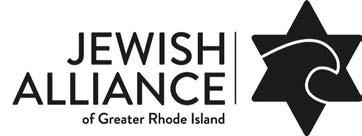
THE RHODE Island Jewish Historical Association lost one of its eminent historians when Geraldine Foster, 95, passed away recently. The first woman president of the association, Jerry was the daughter of Beryl Segal, one of the organization’s founders. Her son, Harold Foster, is
is the oldest state or local Jewish historical society in continuous operation in the United States. The Chaya and Beryl Segal Archives hold more than 5,000 photographs and documents.
It was not surprising that Jerry, an English teacher and chairwoman of the English Department at Nathan Bishop Middle School, in Providence, followed in her father’s footsteps and became fascinated with Jewish history. And she loved to write, a talent she put to good use when she researched and wrote extensively about the history of the Jews in Rhode Island.
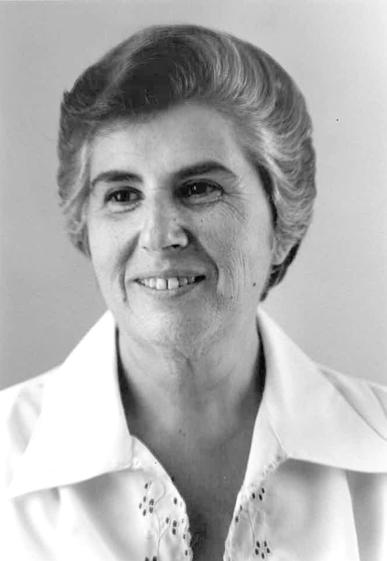
the current RIJHA president.
The history of the Jews in Rhode Island ran deep in Jerry’s veins. Her father, a pharmacist at The Miriam Hospital, passionately believed that the history of the culture and religion of the state’s Jews should be preserved. RIJHA was chartered in 1951 and
Along with the many articles she wrote for the R.I. Jewish Historical Notes and The Jewish Voice, she co-edited and wrote chapters for “The Jews of Rhode Island, 1658-1958.”
Jerry’s close friend, Anne Sherman, who for many years was the office manager for RIJHA, said that Jerry’s greatest accomplishment was writing for the Notes. Jerry and Eleanor Horvitz wrote many of the important stories about Providence’s Jewish communities, synagogues and businesses, many of which no longer exist. Schol-
ars and researchers of local Jewish history continue to find these articles useful.
In “The Jews of Rhode Island,” Jerry and Horvitz wrote chapters on “Jewish Farmers in Rhode Island”
and “Summers Along Upper Narragansett Bay, 1910-1938.”
In the chapter on farmers, they began: “As we look at the history of the Jews in Rhode Island, the words farm and farmer seldom appear.”
Many of the Jews who came to Rhode Island around the turn of the last century, from Russia and other Eastern European countries, had
CONTINUED ON PAGE 26


PROVIDENCE HEBREW Day School/New England Academy of Torah is about to launch its annual fundrais
its students, and pursues outstanding staff to teach those students.

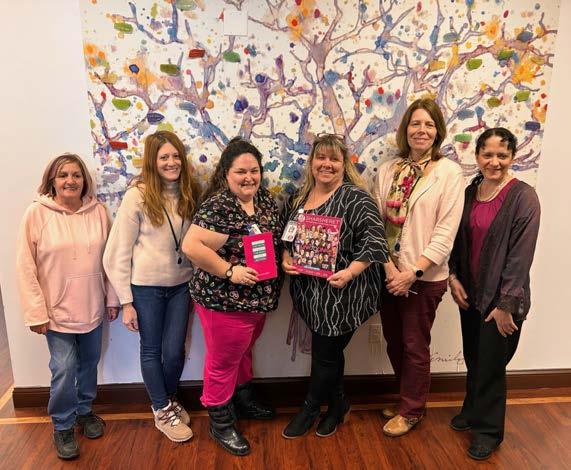

PHDS, founded in 1946, Pink
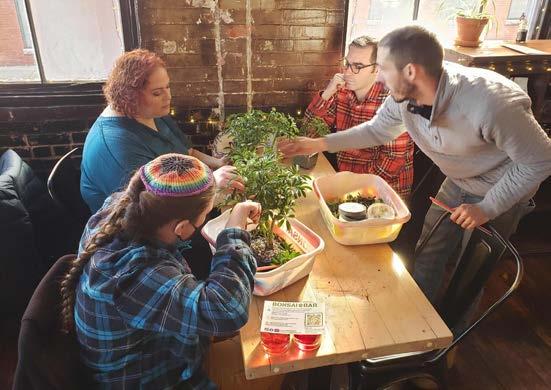
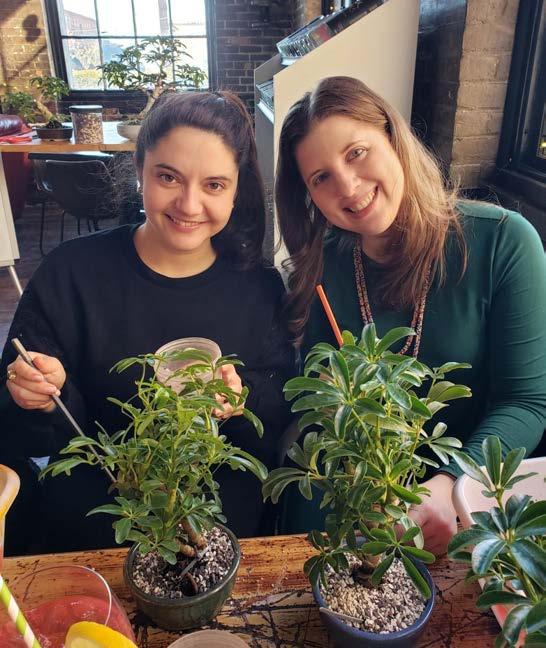
ON FEB.
shape tiny trees. One participant described bonsai as a “living, moving art that you get to see develop over time. It was a
fun Sunday afternoon, and I’ll be enjoying my bonsai for years!”
Shout out to the wonderful folks at Rhodium Distillery in Pawtucket for their tasty drinks, comfortable ambiance and excellent service, and thanks to Josh at Bonsai Bar for sharing his passion for trees with us!



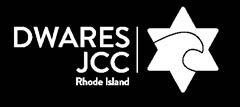

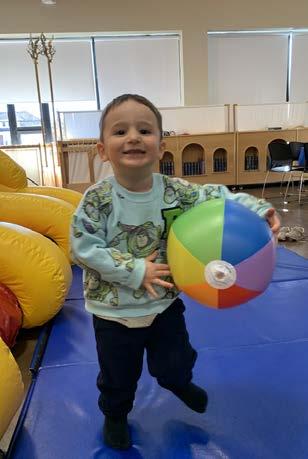
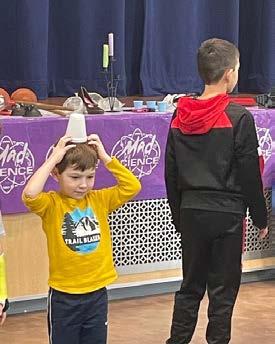
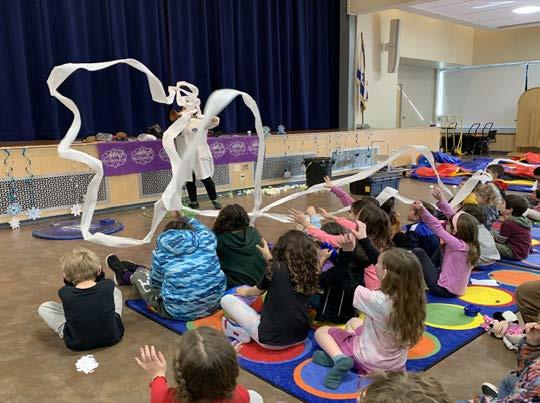
ON FEB. 25, the Jewish Alliance of Greater RI J-Camp staff and Camp JORI staff held a Camp Winter Party at the Dwares Jewish Community Center in Providence. Children could come together, see old friends made at camp the previous year and learn about camp options for the upcoming summer. The event also had special guests from the
Jewish Community Day School and Jewish Collaborative Services who helped with putting together activities for everyone. More than 50 children took advantage of all the activities such face painting, glitter tattoos, a bounce house. A special guest from Mad Science big put on an amazing performance.
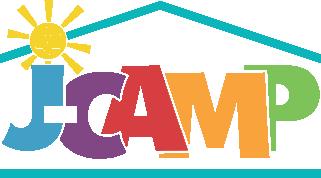

Summer
lunch daily and have weekly field trips and specials guests.

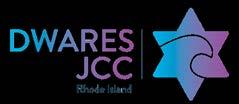
CONTINUED FROM PAGE 23
been farmers when they were forced out of their traditional occupations, so it seemed natural that they would have farms in Rhode Island. The farms have mostly disappeared, but this chapter reminds readers of Jews’ connection to the land.
“Summers Along Upper Narragansett Bay” contains the memories of the Jews who formed summer colonies in such places as Oakland Beach, Conimicut Point, and Shawomet Beach, all in Warwick. They were not in Newport and Narragansett, where the wealthy hobnobbed, but they gave Jews newly arrived in Rhode Island a place to swim, explore and connect with other Jewish immigrants.
Anne Sherman said that
Jerry was always there for her.
“After my mother died, Jerry called me every morning at 8:45. After I wrote an article, I would say to Jerry, ‘Fix it. I do not know how to write.’ Jerry answered all my Jewish questions.”
Sherman added, “She was my walking Jewish encyclopedia.”
Indeed, Jerry was that for so many in the Rhode Island Jewish community and beyond.
Read Geraldine Foster’s obituary on page 30.
LINDA LOTRIDGE LEVIN is a professor emerita of journalism at the University of Rhode Island and the first vice president of the Rhode Island Jewish Historical Association.
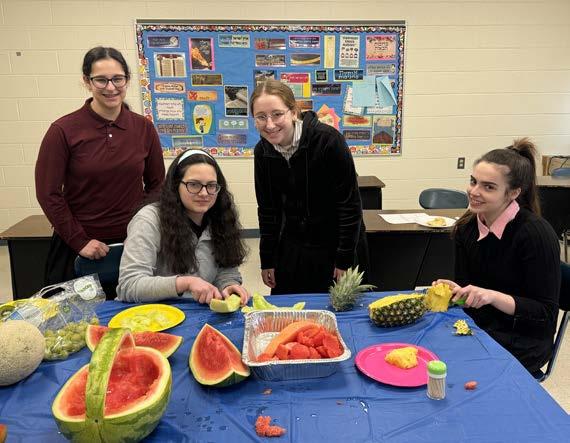
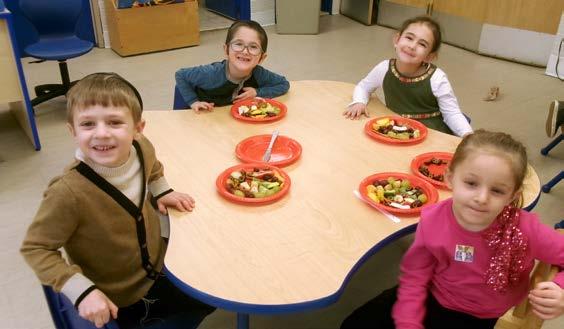
THE WOMEN’S ALLIANCE Endowment Fund of the Jewish Federation Foundation of Greater Rhode Island is pleased to announce its 2024 Request for Proposals.
Established in 1993, WAEF benefits Jewish women and children by supporting educational, health, cultural and social-services programs
worldwide.
WAEF encourages proposals for new or existing programs and services that have the potential for longterm impact.
Grants may fund, for example, program-specific supplies/equipment, specialized staff and travel. Grants will not be considered for admin-
istrative equipment/supplies, payroll, multiyear funding, or from organizations that have been operating for fewer than two years.
All Rhode Island, Southeastern Massachusetts and overseas Jewish organizations, agencies and congregations whose mission falls within the purview of the
Jewish Alliance of Greater Rhode Island may submit grant proposals.
WAEF encourages applicants to find community partners, which need not be Jewish in affiliation. For overseas proposals, preference is given to those providing services in our partner regions of Warsaw, Poland;
Afula-Gilboa, Israel; and Rosario, Argentina.
Email endowment@jewishallianceri.org to request an application, discuss a possible program, or inquire about joining WAEF. The deadline to submit a proposal is April 1.
OVER THE LAST 30 years, the Women’s Alliance Endowment Fund of the Jewish Federation Foundation of Greater Rhode Island has distributed nearly $135,000 in grants for critical programs and services for women and children in greater Rhode Island and around the world.
WAEF members thoroughly review all grant applications to determine where to allocate funding. Funds have been distributed to schools, congregations, social-service agencies, medical facilities and other organizations for programs such as education, engagement for at-risk children and professional development.
Now, WAEF is seeking to
expand its membership by connecting new people with its mission. What do you care about? What can make a difference in your own life while also impacting others?
It’s possible your membership and engagement in the Women’s Alliance Endowment Fund is the right entry point to make a difference.
WAEF raises much of its funds from members. A
$1,000 one-time gift to the fund makes the donor a lifetime WAEF member and gives her the opportunity to participate in the annual grant discussions. Additionally, some WAEF members generously renew their membership every few years, or make contributions to the fund in honor of or in memory of loved ones. Gifts of any amount allow
WAEF to provide more support each year!
For more information on the fund, supported organizations/programs, how to donate or ways to join WAEF, go to www.jewishallianceri. org/waef or contact Claire Uziel, Endowment/Campaign Operations manager at the Jewish Alliance, at cuziel@ jewishallianceri.org.
THE
WOMEN’SAlliance Endowment Fund (WAEF) of the Jewish Federation Foundation of Greater Rhode Island has been supporting the Jewish community since awarding its first grant in 1993.
Camp JORI, the state’s only Jewish overnight camp, has taken advantage of this opportunity year after year.
“Camp JORI has been very lucky to receive funding from WAEF to assist with staff training. It has been crucial to our success and a highlight of the week for our participants. We have been able to source talented women to add a creative outlet to the training in our already packed schedule,” camp director Kara Liberman wrote in an email.
“One summer, we brought in a yoga instructor to help
our staff learn how to teach mindfulness techniques to our campers. Another summer, we brought in a creative art teacher to teach Jewish culture and art through hands-on projects. In addition, we were able to do team building with a Jewish twist. These sessions were truly enjoyed and meaningful to our team. We appreciate the grant and dedication of both WAEF and [the Jewish Alliance of Greater Rhode Island] to Camp JORI.”
The University of Rhode Island Hillel has used WAEF grants for a variety of programs over the past decades. Most recently, WAEF partially funded an intern focused on women’s leadership, engagement and programming.
Here are some reflections from intern Molly Stogner: “To celebrate Women’s History Month, I put a col-
laborative program together with the URI Women’s Center. This program highlighted the connection between the Jewish holiday Purim and International Women’s Day. We talked about the choices Queen Esther made and the choices we, as women, make every day. Seeing URI students simultaneously laughing, smiling, getting educated and enjoying each other’s company was extremely rewarding.
“The most inspiring projects I worked on during my internship were a presentation by Holocaust survivor Alice Eichenbaum, and a Holocaust Remembrance, ‘Walk to Remember.’ My sorority sisters knew how important it was to me, and so wanted to learn more about the Holocaust and why it is so important to convey that history to students today.
“Working with Alice

Eichenbaum was an experience I wouldn’t trade for the world. She inspired me to make a difference in this world for not only Jews, but women in general. The events I have been able to run and assist in over the last year were incredible.”
If you’re interested in join-
ing the WAEF or making a donation, email endowment@ jewishallianceri.org or call 401-421-4111.
CLAIRE UZIEL is the endowment/campaign operations manager at the Jewish Alliance.
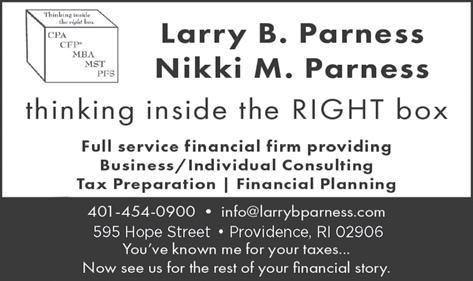
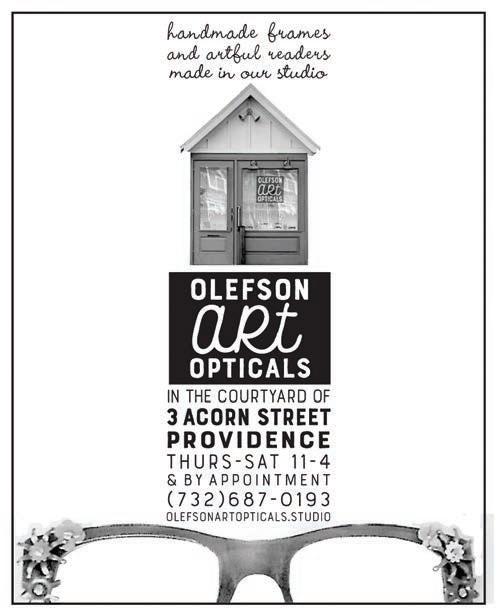
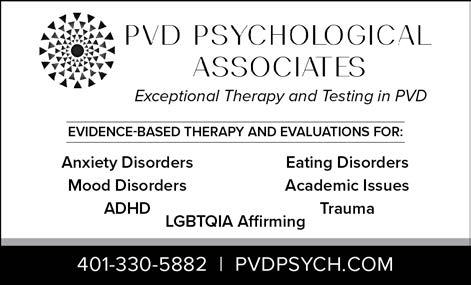
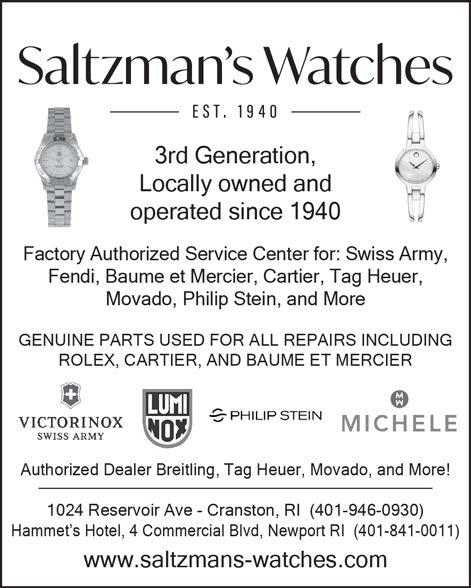








Names being added:
Joseph and Erna Baruch
Isaac and Ella Berger
Regina and Henry Berger
William and Hella Berger
Jeannette Berkovic
Bornstein
Family Berkowitz
Charles and Marguerite
Bojar
Max and Julia Brandt
Louise Bronner
Tina Chernick
Henoch Cohen
Chaim and Freida
Ditman
Marcel Dutwin
Anna Entina
Edward Entina
Lola Epstein
Names already engraved:
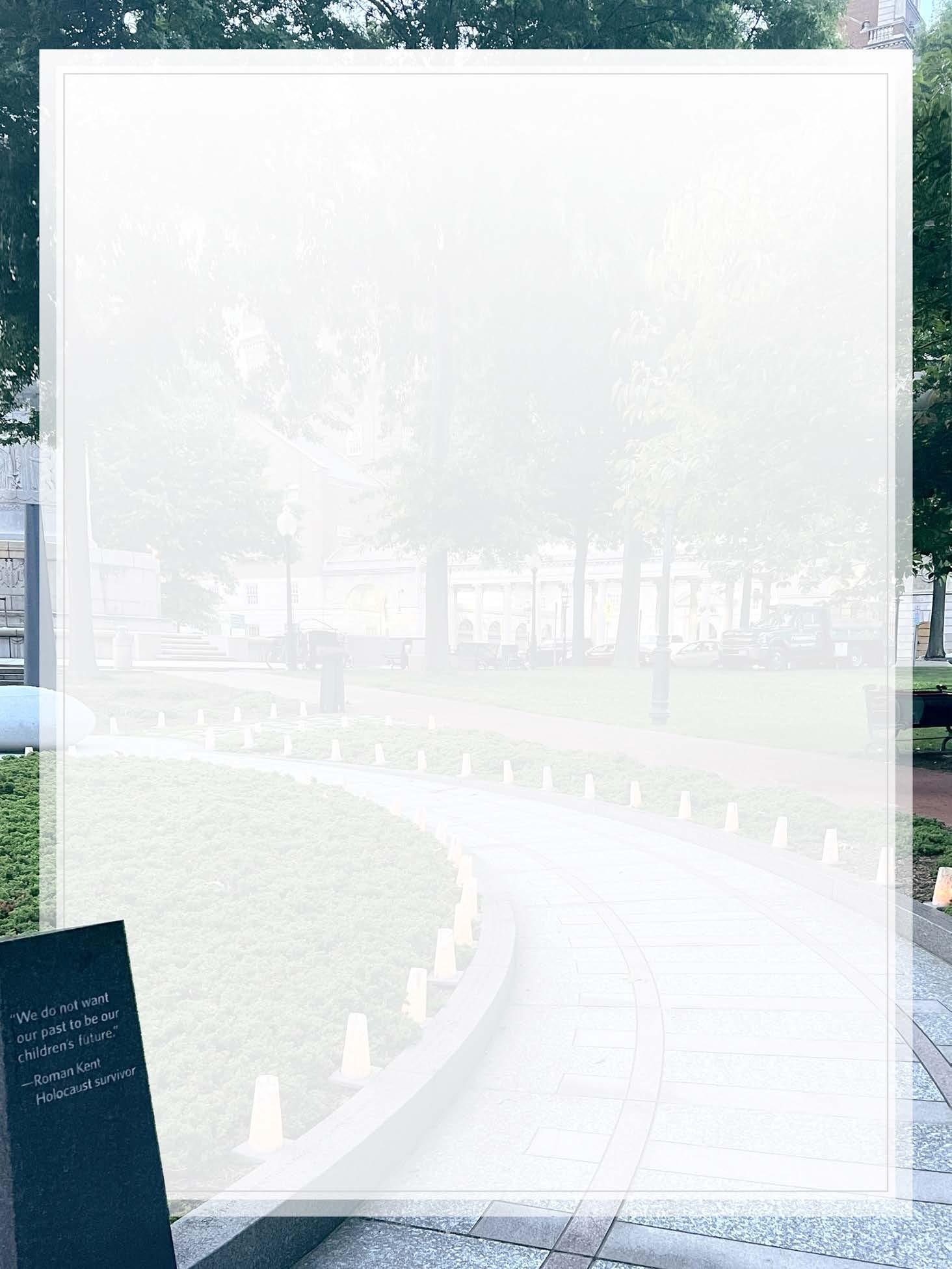
Madeline or Magdelene
Epstein
Max and Chaya Fessel
Lottie J. Fienberg
Hella Flescher
Jerry and Kitty
Gottfried
Otto Gottschalk
Herman Greenstein
Arthur and Naomi
Grueneberg
Alice Haas
Tess Hassenfeld
Family Hasterlik
Family Hausman
Chaim Karlin
Yakov Karlin
Sura-Riva Karlina
Soloman and Pearl
Kofman
Solomon Korner
Henry & Rose Abramowitz
Betty Adler
Edward O. & Gertrude T. Adler
Morris & Tilly Amcis
Sonia & Samuel Jamnick
Peter Bardach
Oscar & Rose Berger
Rose Berkovic
David Brandt
Nellie Brandt Fine
Morris & Sonja Cykert
Doris Donovan
Edith Dushinsky
Alice & Ray Eichenbaum
Eleanor Elbaum
Lea & Solomon Eliash
Asya Eliash Berger
Elfrieda & Josef Elsner
Helga Elsner
Lola Epstein
Jack Faust
H. Jack Feibelman
Schewa Korner
Regina Korner
Mina Korner
Abraham Korner
Ada Kushner
Tanenbaum Winsten
Emmi Leib
Gerhard Leib
Max Liffman
Faina Liskovich
Gizella Braun and Edward Lowy
Lola Marguiles
Moritz Neuron
Henry and Clara Oelbaum
Maurice and Erna
Olebaum
Fritz Oswald
Family Passman
Haskell and Mania Pick
Rudy & Lily Flatow
Henry & Lillian Flescher
Max & Regina Formal
Salek Formal
Rudy & Edith Freudenberger
Oscar & Bessie Garfunkel
Kalman & Mina Gastfreund
Morris & Sally Gastfreund
Berek & Mania Gelade
Israel Gelbtuch
Oscar & Freda Gelbtuch
Pepa Gelbtuch
Sam & Bella German
Alice Goldstein
Ruth & Abraham Goldstein
Jack & Golda Grabowski
Herman Greenstein
Hellmut & Lottie Hirsch
Anna & Henry Hodys
Bruno & Herta Hoffman
Leib & Clara Horen
Herman & Rose Israel
IT IS ALSO A TRIBUTE to the survivors who made their way to Rhode Island, built new lives around their families and contributed to the social fabric of our state.
The remainder of names to be engraved will be completed this spring.
If you know of a survivor who settled in Rhode Island, and the name is not listed below or if you see a spelling error in a name, please contact: Sandra Bornstein Holocaust Education Center by March 31 info@hercri.org | 401.453.7860
Family Povar
Anna F. Prager
Family Regensteiner
Bernard and Esther Reich
William and Helen Reich
Gladys and George Roback
Otto, Martha and Peter Rosedale
Fred and Adrienne
Saalfeld
Sachshneider Family
Lola Schafranik
Ruth and Edward Scherz
Eli Shaw
Albert Silverstein
Spigelman Family
Henry Sprung
Sonia Sprung
Greta and Eric Steiner
Jack & Hanna Jozefowicz
Leonard & Sonia Kalowski
Rabbi Josie Kapp
Benjamin & Leah Kessler
Irma & Jacob Klapper
Sala & Henry Koszerowski
Edgar Krasa
Fred & Eve Mittler
Esther & Ezra Mudrick
Bernhardt & Edith Nathan
David & Nina Newman
Senek & Judith Newman
Robert Nograd
Aaron & Kay Novogrodski
Ismar & Erika Pick
Maurice Prinz
Robert Reider
Lenka K. Rose
Erich & Ilse Rothschild
Herbert & Leisel Rothschild
Rachel & Sam Rotkopf
Simon & Frances Ryger
Leonid Stukalov
Bianca, Fritz, Peter, Traugott
Victor Tulenfed
Leonard Varga
Margarete Eckmann
Voremberg
Family Wachtenheim
Hans and Hilda Wallach
Ruth and Kurt Wallach
Roschen Weber
Manfred Weil
Kurt and Erna Weiler
Ruth and Kurt Weiler
Paul B. Weisz
Herman and Helen Yomtov
David and Ida Yomtov
Arthur and Gretchen
Zander
Boris Zitserman
Amalie & Heinz Sandelowski
Bruno & Martha Schneider
Joseph & Helen Schwartz
Fanya Shpiller
Marie Silverman
Rudy Snyder
Masza & Roman Sompolinski
Edward C. Spencer
Sonja & Izak Spiegelman
Meyer & Rachel Spitzman
Srul & Masza Suchodolski
Pearl & Josef Suraski
Henry Szynkarski
Janice & Samuel Trachtenberg
Charles Turek
Kurt & Ann Weber
Irving Weinreich
Robert & Rose Weiss
Marty Weissman
Igor & Elsie Wenkart
Hela & Iser Widawski
Irene Askins, 89 WEST WARWICK, R.I. –Irene S. Askins died Feb. 13, 2024, at West View Nursing Home.
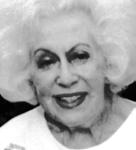
Born in Providence, a daughter of the late Isadore and Bella Askins, she had lived in West Warwick since 2018, previously living in Warwick. Irene was a customer service representative for National Grid in Providence for 35 years, retiring in 1998. She was a graduate of Hope High School, Class of ’53. She was an avid reader and enjoyed traveling.
She was the cherished cousin of Sylvia and Philip Geller of Boca Raton, Florida.
Contributions may be made to the charity of your choice.
Alexandra Broches, 81 SOUTH KINGSTOWN, R.I.

– Alexandra Broches died Feb. 13, 2024, at Brookdale South Bay. She was the wife of Darrell Matsumoto for 40 years. Born in Manhattan, New York, a daughter of the late Aron and Catherina (Pothast) Broches, she had lived in Wakefield since 1968.
She was a fine art photographer, exhibited widely and
was a professor at various colleges, retiring over 15 years ago. Alexandra earned a B.A. from Bennington College, an M.A. in art history from Hunter College, and an MFA in visual art from Vermont College. She was a founding member of Hera Gallery and Hera Educational Foundation.
She was the devoted mother of Rachel Calabro and her husband, Jason Travers, of Providence. She was the dear sister of Paul Elias Broches and his wife, Julie Spain, of New York City. She was the loving grandmother of Pepper and Michael. She was the cherished aunt of Rebecca and Emma and great-aunt of Sadie and Clara.
Contributions may be made to Hera Gallery Educational Foundation, P.O. Box 336, Wakefield, RI 02880.
Neal Dwares, 69

EAST PROVIDENCE, R.I. – Neal H. Dwares died Feb. 11, 2024, at home. He was the devoted husband of the late Cheryl Peterson. Born in Providence, a son of the late Robert and Shirley (Gold) Dwares, Neal had lived in East Providence for over 30 years, previously living in Warwick.
He was head custodian at CCRI until his retirement 5 years ago. Neal earned a B.S.

from Roger Williams University, Class of 2000 and was a member of Touro Fraternal Association. He was the father of Robert Dwares and his wife, Tara, of Cranston; and Kimberly Lau and her wife, Mel, of Warwick. He was the former husband of Gail Z. Dwares of North Kingstown. He was the cherished doggy daddy of his beloved bichons, Haley, Jill and Cocoa.
Contributions in his memory may be made to RISPCA, https://www.rispca.org/tribute-gifts.
Geraldine Foster, 95 SOMERSET, MASS. –Geraldine (Segal) Foster, of Somerset, passed away peacefully at home surrounded by her family. Mother of Judith (Mark Andres), Vivian (Rudy Drolet), Libby (Miko Agai) and Harold (Sara Ann Ritch); grandmother of Beryl, Abby, David, Avi, Sasha, Adam, Dov and Deana; and greatgrandmother of Brooke, Levi, Ezra, Shea, Aaron, Beau, Rose, Zoey, Elia, Maddy, Avis and Della, she was born to Chaya (Waxman) and Beryl Segal in Rochester, New York, sister of Annette (Segal) Hockman.
She lived most of her life in Providence, where she was a lifelong member of Temple Beth-El.
She graduated from Classical High School (summa cum laude) and received an AB from Pembroke College in 1949, and an MAT from Brown University in 1966. She had a passion for teaching and writing. During her career she was chair of the English department at Nathan Bishop Middle School.
She researched and wrote extensively about the history of the Jews of Rhode Island. Alongside the many articles she wrote for the RI Jewish Historical Notes and The Jewish Voice (now Jewish Rhode Island), she co-edited “Jews of Rhode Island, 16581958.” She had an extraordinary impact on Jewish communal life in RI, having served as president of organizations such as the Women’s Division of the Jewish Federation of RI, the Bureau of Jewish Education, the Devorah Dayan chapter of Na’Amat and the RI Jewish Historical Association.
Donations can be made to the Chaya and Beryl Segal Archives of the RI Jewish Historical Association or
Na’Amat.
Richard Goldman, 66
CUMBERLAND, R.I. –Richard Goldman died Jan. 31, 2024, at home. He was the husband of Loren (Lampal) Goldman for 30 years. Born in Providence, a son of Hy Goldman, of Providence, and the late Carole (Fields) Goldman, he had lived in Cumberland for over 20 years, previously living in Cranston. He worked in mergers and acquisitions for Amwins for over 20 years.
He was the devoted father of Seth Goldman, of Cumberland. He was the dear brother of Marion Wainer and her husband, Henry, of Mattapoisett, Massachusetts. Contributions may be made to the charity of one’s choice.
Norman Gorden, 86 WARWICK, R.I. – Norman H. Gorden passed away peacefully on Feb. 16, 2024, in Warwick. Born in Pawtucket, he spent his adult life in Warwick. He was the devoted son of Joseph and Anne (Glassman) Gorden and beloved brother of Beverly Gorden Schneider of Narragansett and Roberta D. Johnson of Warwick. He is also survived by many nieces, nephews and cousins. He was predeceased by his loving partner, Helen Milam.
Mr. Gorden graduated from Pawtucket Vocational High School where he learned the trade of commercial printing, which led him to spend his entire career in that field. For 33 years he was employed by ArtMold Products.
He was passionate about square dancing and for many years was an active member of The Swinging Squares square dance club of Cranston. He was also a past member of the former Temple Beth Am/Am David of Warwick.
Contributions can be made to Congregation Beth David, P.O. Box 3299, Narragansett, RI. 02882
Alan Halsband, 86
EAST GREENWICH, R.I. –Alan I. Halsband died Feb. 24, 2024, at Saint Elizabeth Home. He was the beloved husband of Harriet (Kriss) Halsband for 8 years and the late Marcia (Aptel) Halsband for 47 years. Born in Providence, a son of the late George and Anna (Goldstein) Halsband, he had lived
in East Greenwich since 2016, previously a longtime resident of Warwick.
He was a test engineer for Electric Boat in Groton, Connecticut for 34 years and Tower Manufacturing in Providence for 8 years, retiring in 1996. Alan was an Army veteran, serving from 1958-61 in Korea. He graduated from Roger Williams College, Class of ’89. Alan was a member of Temple Emanu-El, Touro Fraternal Association and the Masons – Overseas Lodge.
He was the devoted father of Jeffrey Halsband and his wife, Lori, of Collins, Georgia; and Scott Halsband and his wife, Donna, of Warwick. He was the loving brother of Sidney Halsband and his wife, Marta Redniss Maresco, of Southbury, Connecticut; and Joan Dellicarpini and her husband, Pat, of Fairfax, Virginia. He was the adored grandfather of Alma, Tara, Jacob, Justin and the late Samantha. He was the cherished great-grandfather of Kelsie, Derek, Mason, Bryson and Brooklynn. Alan is also survived by Harriet's children, Marci, Ron, and Ronni. Alan is also survived by Harriet's children, Marci, Ron, and Ronni.
Contributions may be made to Temple Emanu-El, 99 Taft Avenue, Providence, RI 02906 or Jewish Collaborative Services, 1165 North Main St., Providence, RI 02904.
CRANSTON, R.I. – Richard A. Hochman died Feb. 1, 2024, at HopeHealth Hulitar Hospice. He was the beloved husband of Ann (Zisserson) Hochman for 58 years. Born in Providence, a son of the late Hyman and Ethel (Alberts) Hochman, he had lived in Cranston for 58 years. He owned several businesses over the course of his lifetime, retiring in 2009.
Richard was an Army reserve veteran. He attended Bryant College. He coached Little League and men’s softball for 26 years.
He was the devoted father of Debra Sanchez and her husband, Lou, of San Diego, California; and the late Derek Hochman. He was the brother of Arlene Adler, of Narragansett. He was the loving grandfather of Sarah, Rachel and Nathaniel. He was the cherished uncle of several nieces and nephews. Contributions may be made to HopeHealth Hulitar
Hospice, 1085 North Main St., Providence, RI 02904 or St. Jude’s Children’s Research Hospital.
Lisa Kramer, 59 NORTH PROVIDENCE, R.I. – Lisa D. Kramer died Feb. 9, 2024, at Riverview Health Center in Coventry. Born on Long Island, New York, a daughter of Beverly (Waterman) Kramer and the late Arthur Kramer, she had lived in Coventry since 2022, previously living in North Providence. Lisa was previously employed at Kramer Lighting, Inc., Middletown, retiring in 2002. Lisa enjoyed working with children. She volunteered at pet shelters and loved music, dancing and travel.
She was the dear sister of Eugene Kramer of Slatersville.
Contributions in her memory may be made to the ASPCA.
Clarissa Kulman, 91 NARRAGANSETT, R.I. –
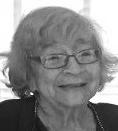
Clarissa B. Kulman died Feb. 21, 2024. She was the beloved wife of the late Lawrence Kulman. Born in Hartford, Connecticut, a daughter of the late Hyman and Sasha (Warren) Kosloff, she lived in Narragansett for 40 years. Clarissa was a member of the former Temple Am David and Beth Am. She was a life member of Hadassah.
She was the devoted mother of Randy Kulman and his wife, Gail Meisner, of South Kingstown; Hope Rittner and her husband, Joel, of Saunderstown; and Bruce Kulman of Boynton Beach, Florida. She was the dear sister of the late Herbert Kosloff. She was the loving grandmother of Scott, Seth, Ethan, Spencer, Maxwell, Madison and Mia. She was the cherished great-grandmother of Lila and Jonah.
Contributions may be made to the Rhode Island Food Bank, 200 Niantic Ave., Providence, RI 02907.
Marcia Spindell Lentz, 70 PROVIDENCE, R.I. – Marcia Deborah Spindell
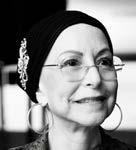
Lentz died Feb. 10, 2024, in Providence after a brave yearlong battle with pancreatic
cancer. She had been visited by many close friends and family during hospice and was surrounded at the time of her death by her most beloved sons and their spouses, Joshua Lentz/ Emma Lentz and Aaron Lentz/Abby Weltman. Additional survivors include brothers, Lawrence Ahvi Spindell/Jane Gabbert and Stephen D. Spindell; her former husband of 30 years, Jonathan Lentz; nephews, Daniel and Andrew Lentz; niece, Jessica Crosby/ Joe Crosby, and greatniece, Peyton; nephew, Simon Spindell; cousins, Francine Clark, Stuart Chernack, Allan Kaplan, Andrea Lieberman/ Dr. Michael Lieberman, Caryn Granofsky/Richard Granofsky, Stephanie Bleiweiss/Dr. Ira Bleiweiss, Andrew Spindell; aunt, Esther Kaplan; and stepsiblings Faith Tobias, Julie Corwin and Chaim Cohen/ Michal Cohen. Marcia was predeceased by her mother, Edith Koffler Spindell, and her father, Dr. Edward Spindell, and his wife, Judith Spindell.
Marcia graduated from Classical High School, Brown University (BA) and New York University (MA Dance Therapy). She was a board-certified Dance Movement Therapist and co-founder of the Expressive Therapy Center of RI. In her later career, she brought much joy to her patients at Eleanor Slater Hospital through arts. Marcia was a passionate worldwide traveler, an avid fine artist, devoted gardener, and lover of music and all the arts. She raised her family on Hope Street, in Providence, and retired to Kettle Point, in East Providence. She was an active member of Temple Emanu-El and former member of Temple Beth-El. She spent many happy summer days with family and her beloved dog, Jazz, on Cape Cod. Her dynamic presence and infectious joie de vivre will be missed by all.
Contributions may be made to the Jewish Alliance of Greater Rhode Island, 401 Elmgrove Ave., Providence, RI 02906; the RI State Council on the Arts, 1 Capitol Hill, #3, Providence, RI 02908; or The Foundation to Combat Antisemitism (https:// standup.fcas.org).
Eleanor Marcus, 93
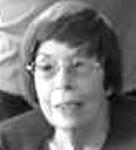
CRANSTON, R.I. – Eleanor Marcus died Feb. 2, 2024, at Alpine Nursing Home. She was the beloved wife of the late Sidney Marcus. Born in Providence, a daughter of the late Samuel and Sadie Charles, she had lived in Coventry since 2019, previously living in Warwick and Cranston. She was a hairdresser for Simones, in Cranston, and Shepards, in Providence. Eleanor was a member of Temple Sinai and its sisterhood as well as B’nai Brith.
She was the devoted mother of Robert Marcus and his wife, Paula, of Wiscasset, Maine; and Steven Marcus and his wife, Renée, of Warwick. She was the dear sister of the late Alan and Don Charles. She was the loving grandmother of David, Amanda, Danny and Meaghan.
Contributions may be made to Temple Sinai, 30 Hagen Ave., Cranston, RI 02920.
Arthur Robbins, 91
PROVIDENCE, R.I. – Arthur Robbins died Feb. 20, 2024, in White Plains, New York. He was the beloved husband of Judith (Segal) Robbins for 67 years. Born in Worcester, Massachusetts, a son of the late Robert and Nancy (Medoff) Robbins, he was a lifelong Rhode Islander. He was the adored father of Mark Robbins of Asheville, North Carolina; Alisa Robbins Doctoroff and her husband, Dan, of New York, New York; and Carolyn Robbins Levine and her husband, Jim, of Briarcliff Manor, New York. He was the dear brother of the late Donald Robbins and his wife, Esther. He was the loving grandfather of Jacob, Ariel, Jenna, Noah, Ari, Jesse, Adina and Caleb. He was the cherished great-grandfather of Lila and Naomi.
Arthur was a real estate developer who not only built office buildings and hotels, but also communities, through his many professional and volunteer pursuits. Arthur gave his time and wisdom as board member and supporter of a myriad of civic, Jewish and health-related organizations, including Hope Health, Butler Hospital, Textron Chamber of Commerce Academy,
Providence Convention and Visitors Bureau, Big Brothers of Rhode Island and the Rhode Island Holocaust Museum.
He was a mentor to many and the recipient of numerous honors and awards. Arthur was a member Temple Emanu-El. He earned a B.A. in economics from University of Pennsylvania in 1954 and served in the Air Force, earning the rank of Captain.
Contributions in his memory may be made to: HopeHealth Hospice Care of Rhode Island http://hopehealthco.org/donate/ or to Rhode Island 9/11Wall of Hope http://ri-wallofhope. org/donate or the charity of your choice.

